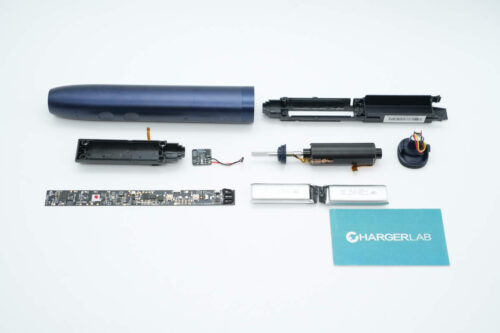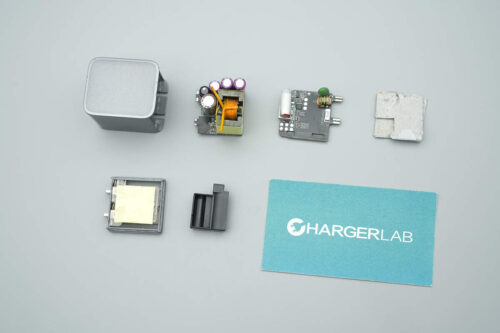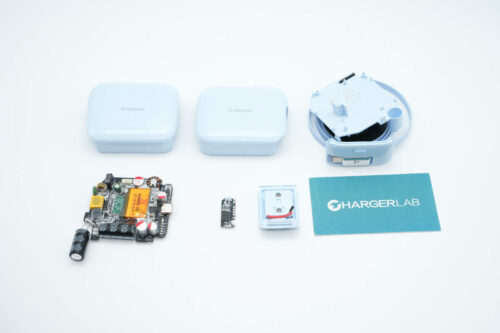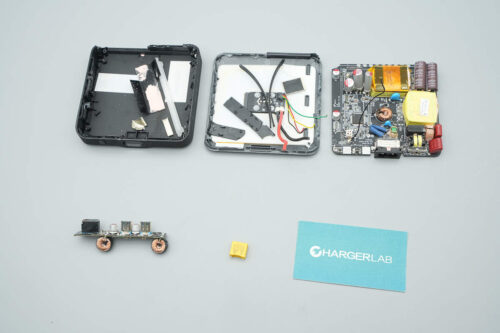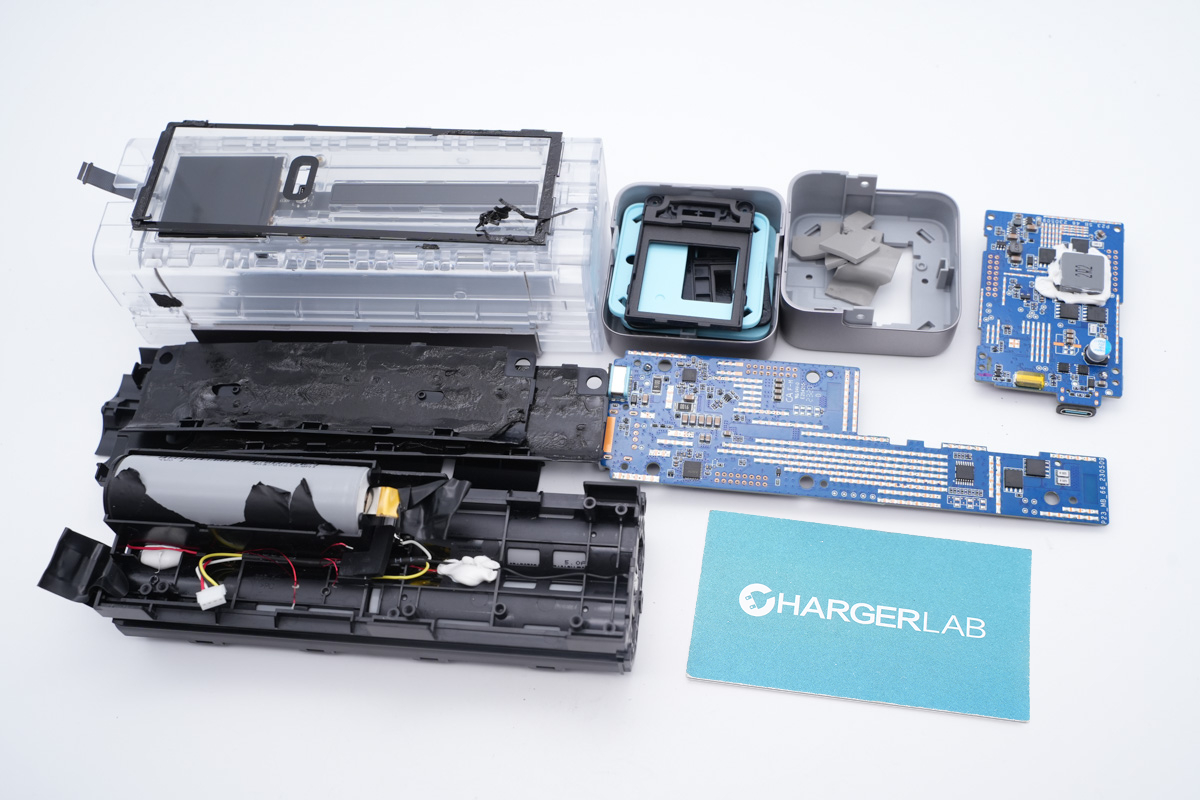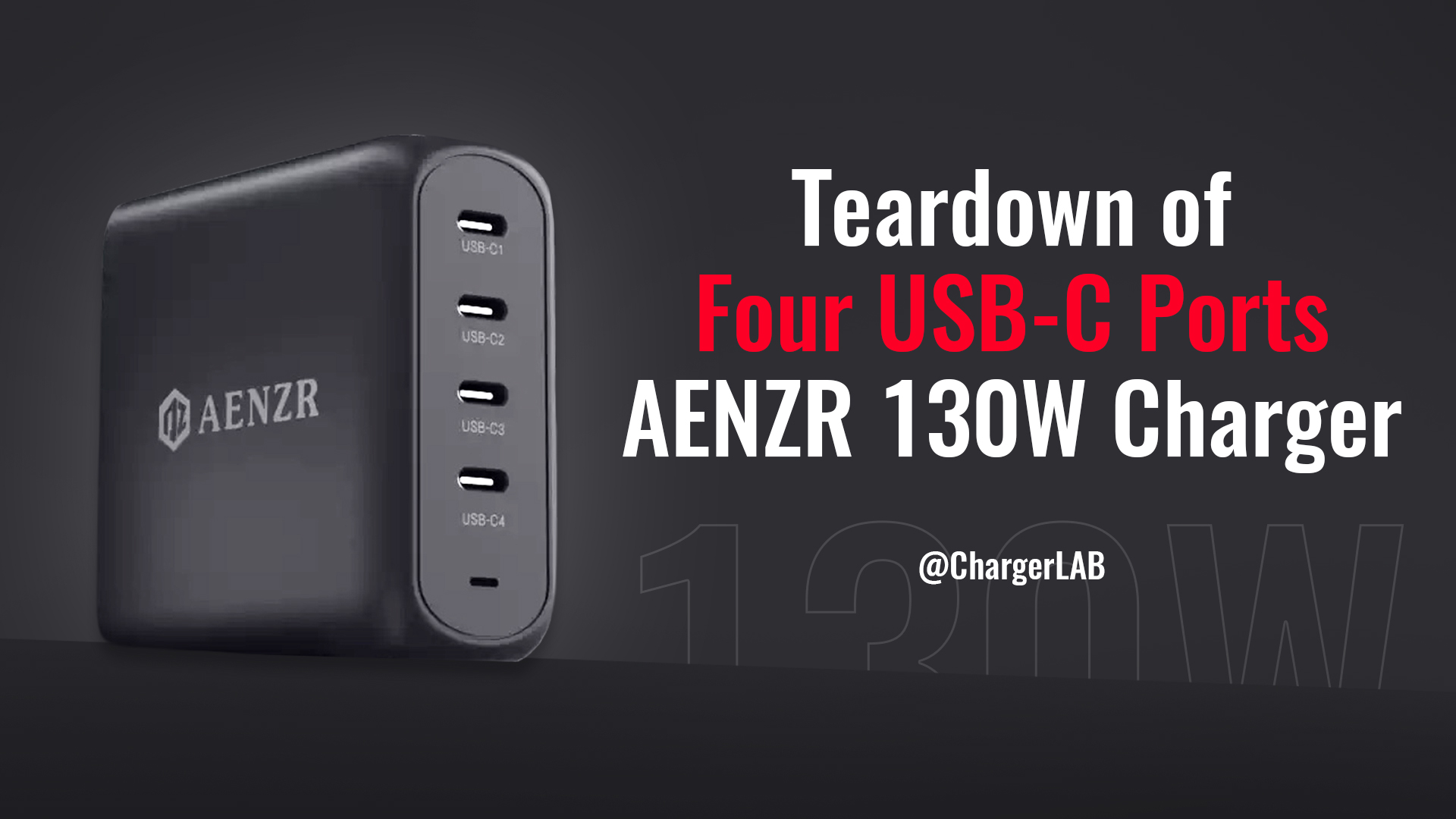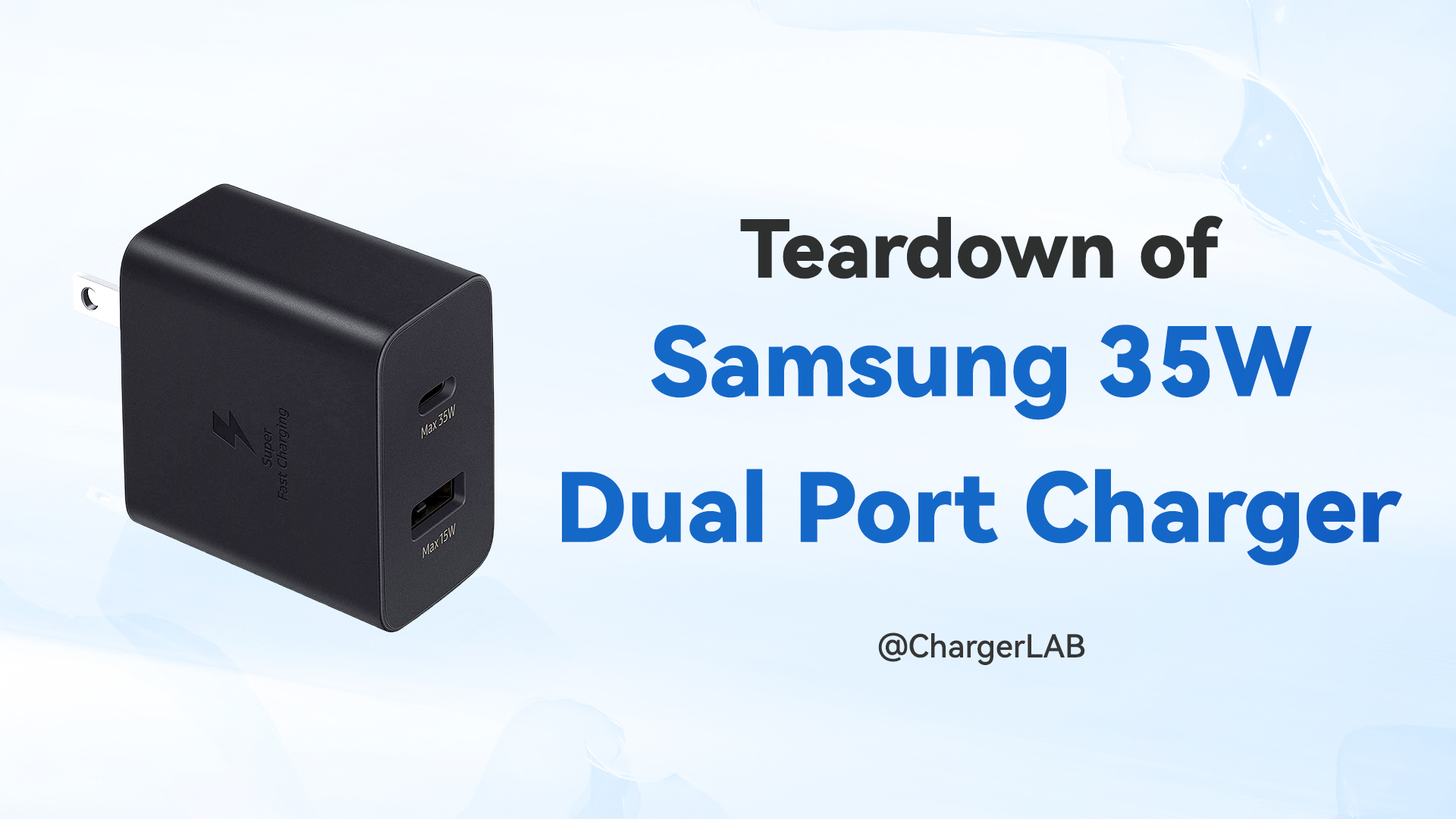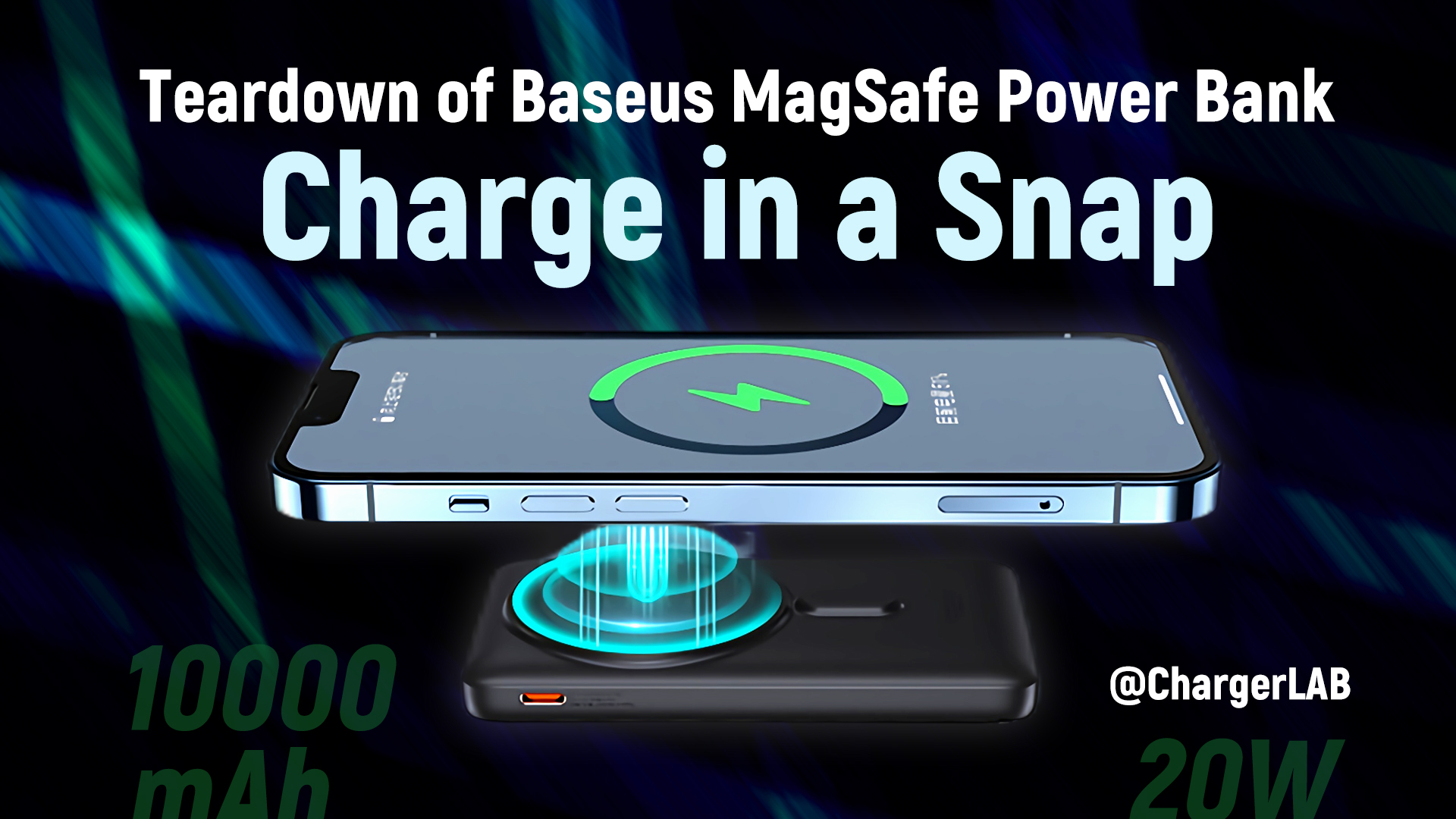Introduction
Today, we will disassemble the Xiaomi Mijia Sonic Sweep Electric Toothbrush. It features a patented multi-directional oscillation motor that delivers horizontal vibrations and vertical sweeps, closely replicating the Bass brushing technique. The toothbrush offers four modes: Care, Clean, Whitening, and Smart, and includes a pressure sensor indicator that provides real-time feedback on brushing force. It can connect to the Mijia app and, with its built-in six-axis sensor, allows users to customize brushing plans tailored to their needs for optimal oral care. Next, we’ll conduct a teardown to examine its internal design and components.
Product Appearance
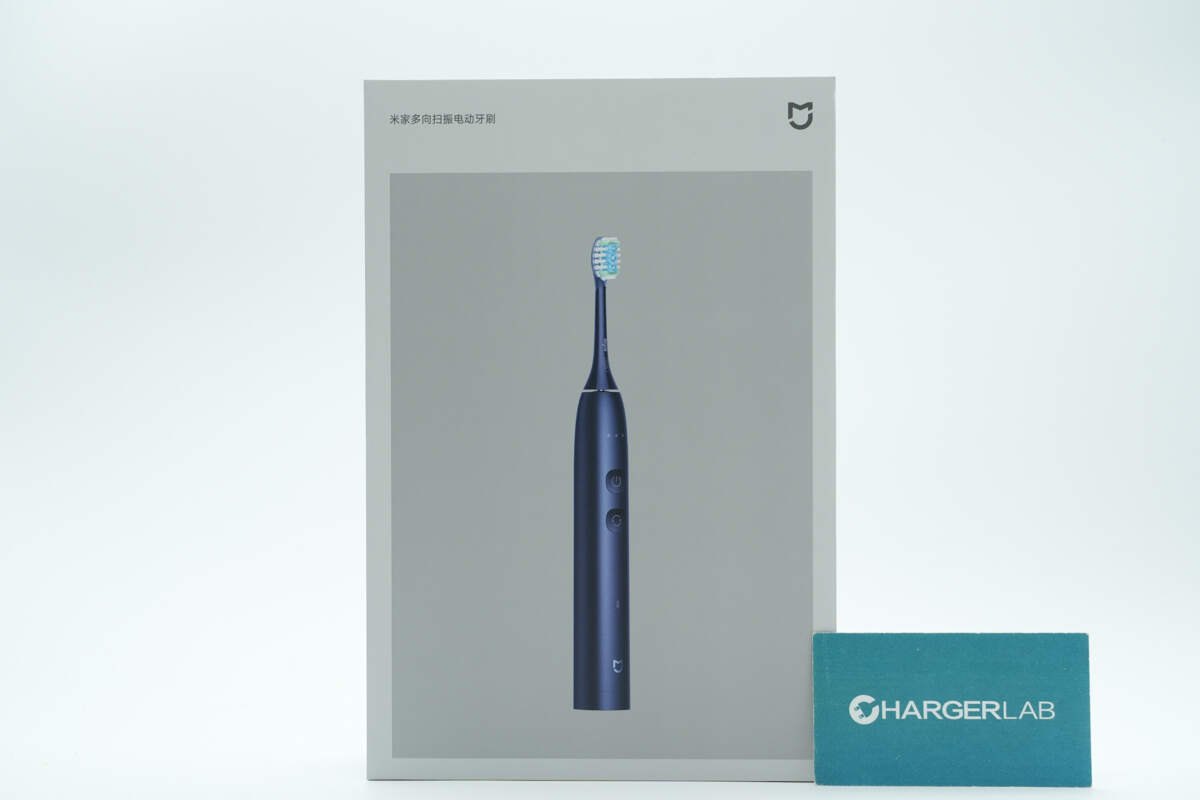
The front of the packaging box features the brand logo, product name, and an image of the toothbrush.
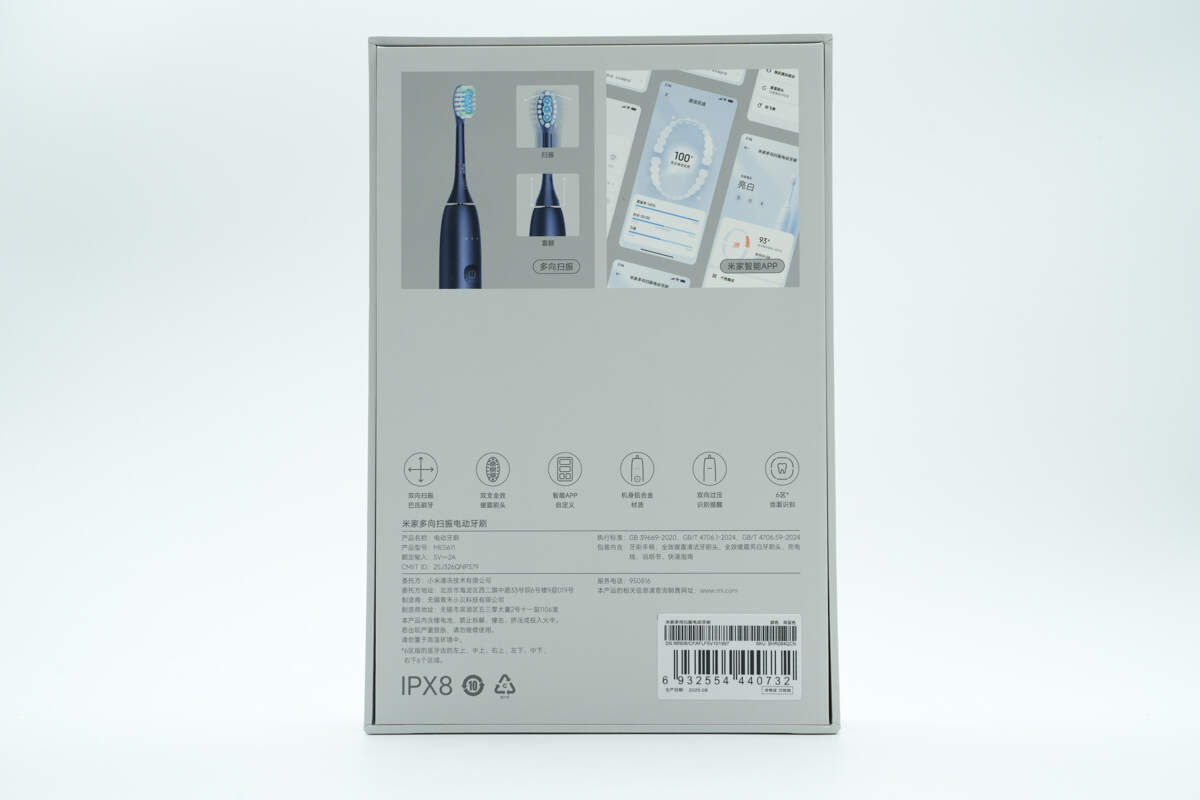
The back of the packaging displays the Mijia app interface, key features, and product specifications.
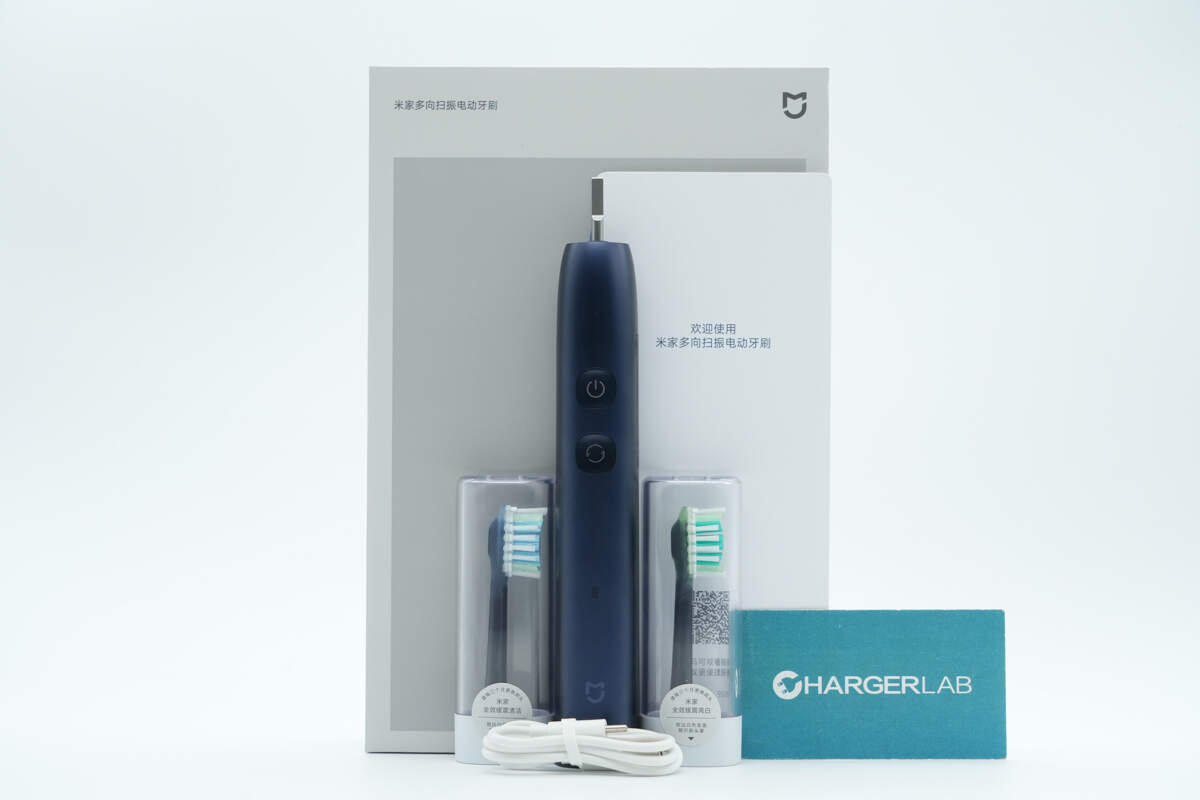
The package includes the toothbrush handle, two types of brush heads, a charging cable, and a user manual.
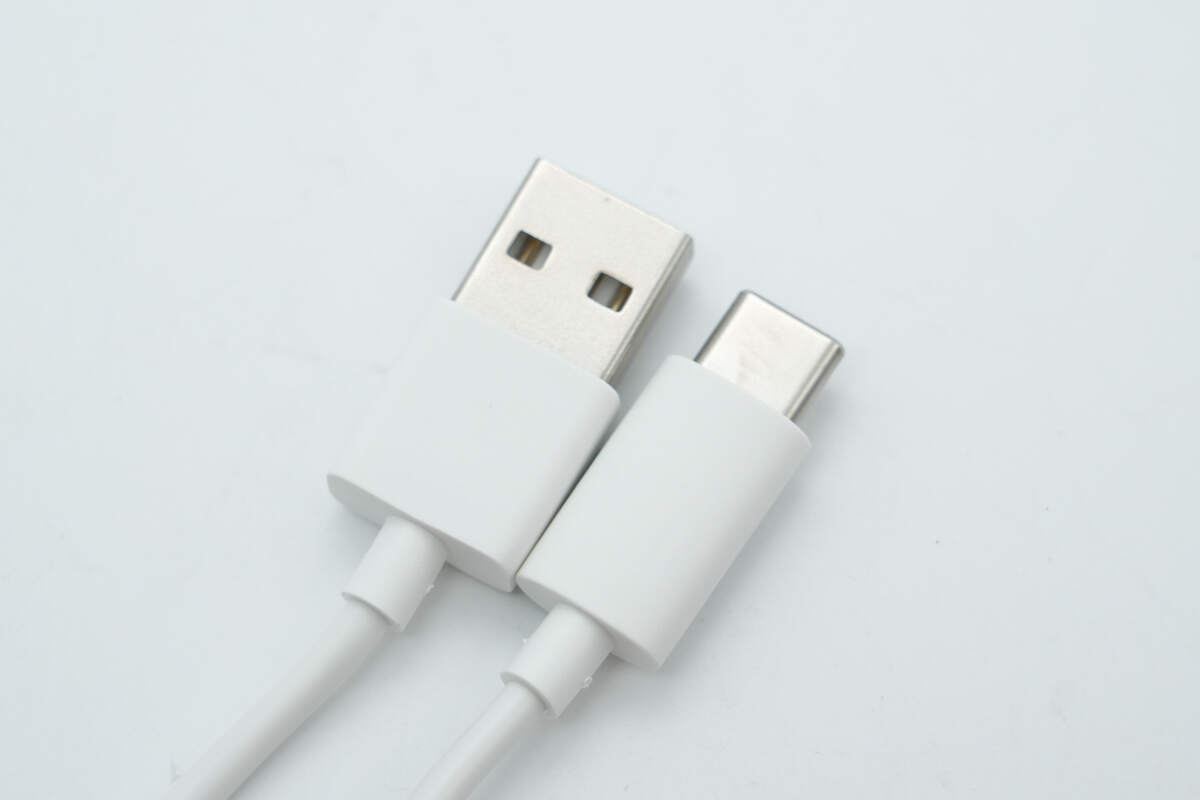
The included charging cable is a USB-A to USB-C type.
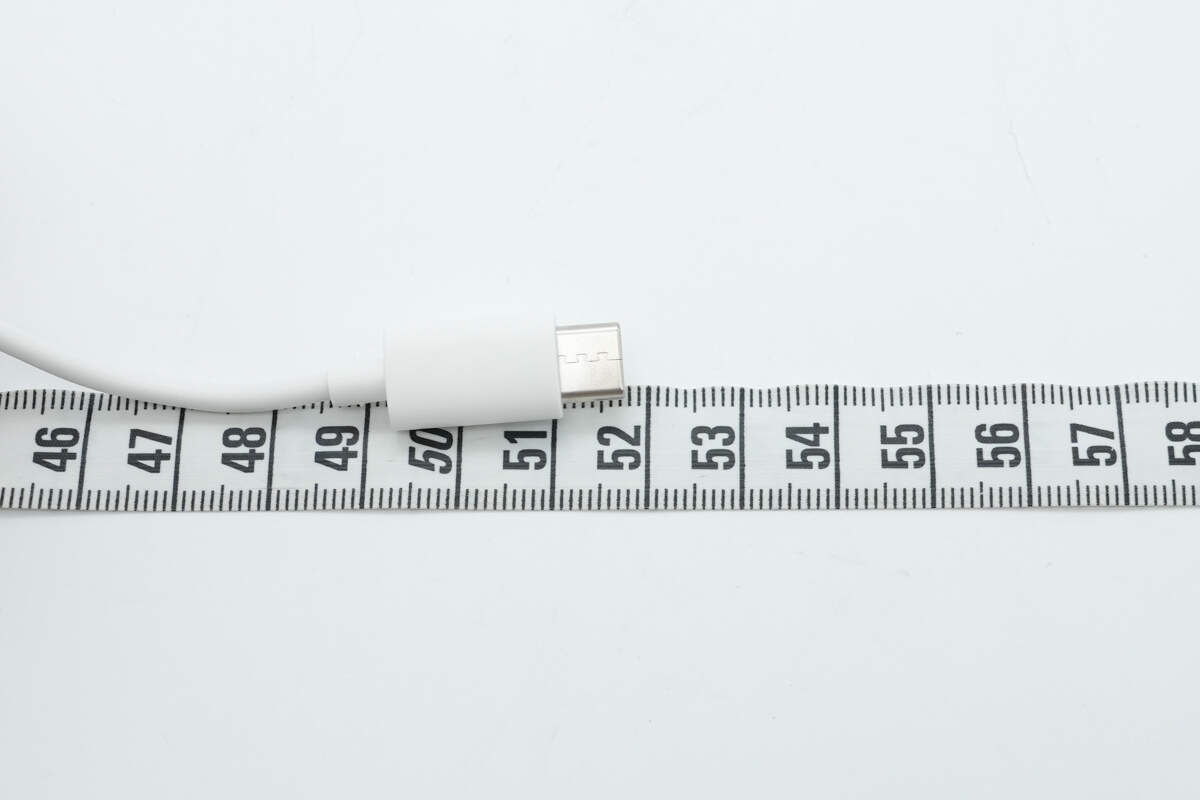
The length is about 52 cm (20.47 inches).
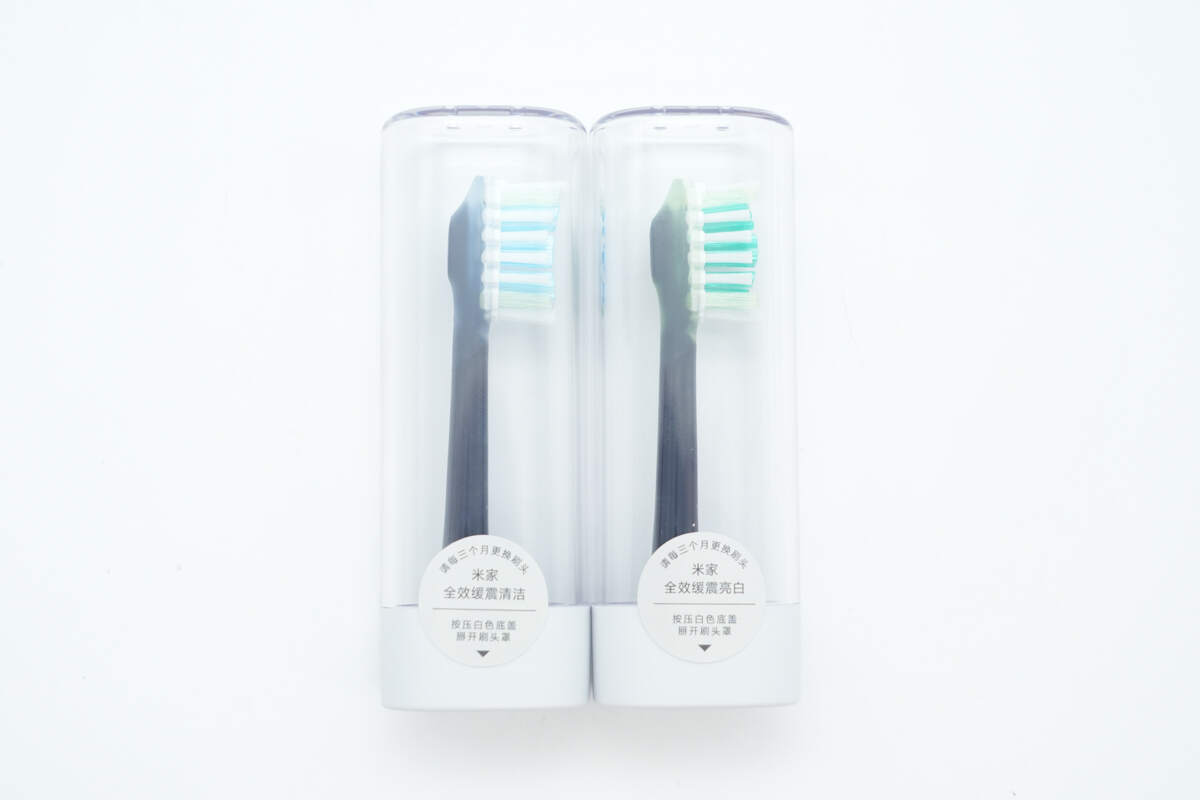
Both types of brush heads come in individual packaging, allowing users to choose freely.
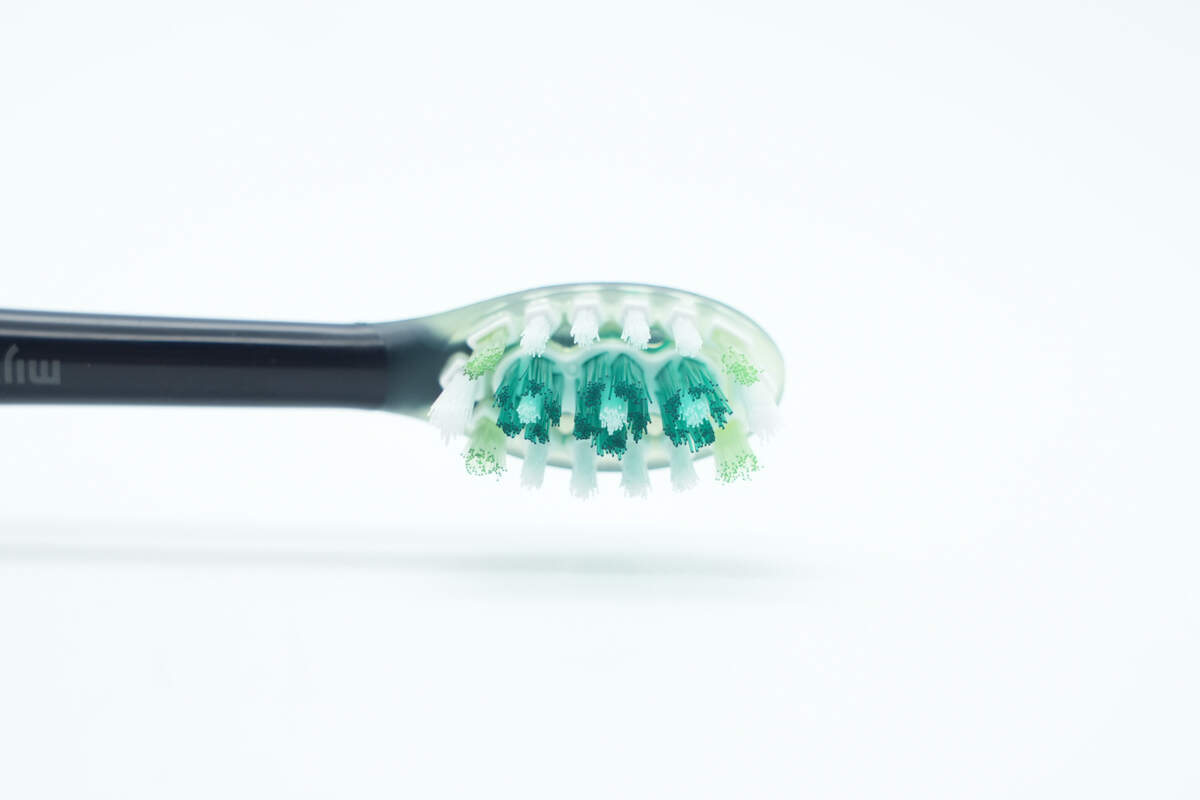
The brush heads are wrapped in soft silicone to protect gums, and feature a 3D contoured design to meet various cleaning needs.
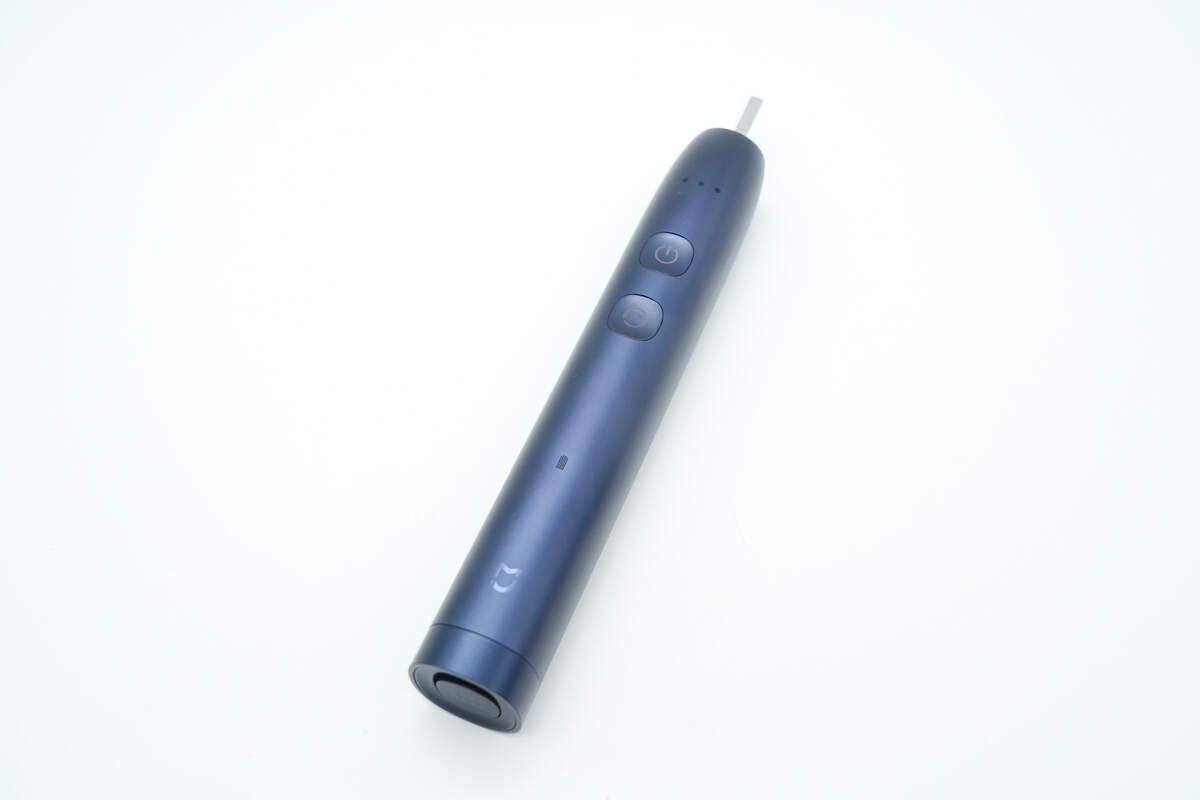
The handle is made from a single-piece aluminum alloy with a uniform sandblasted finish.
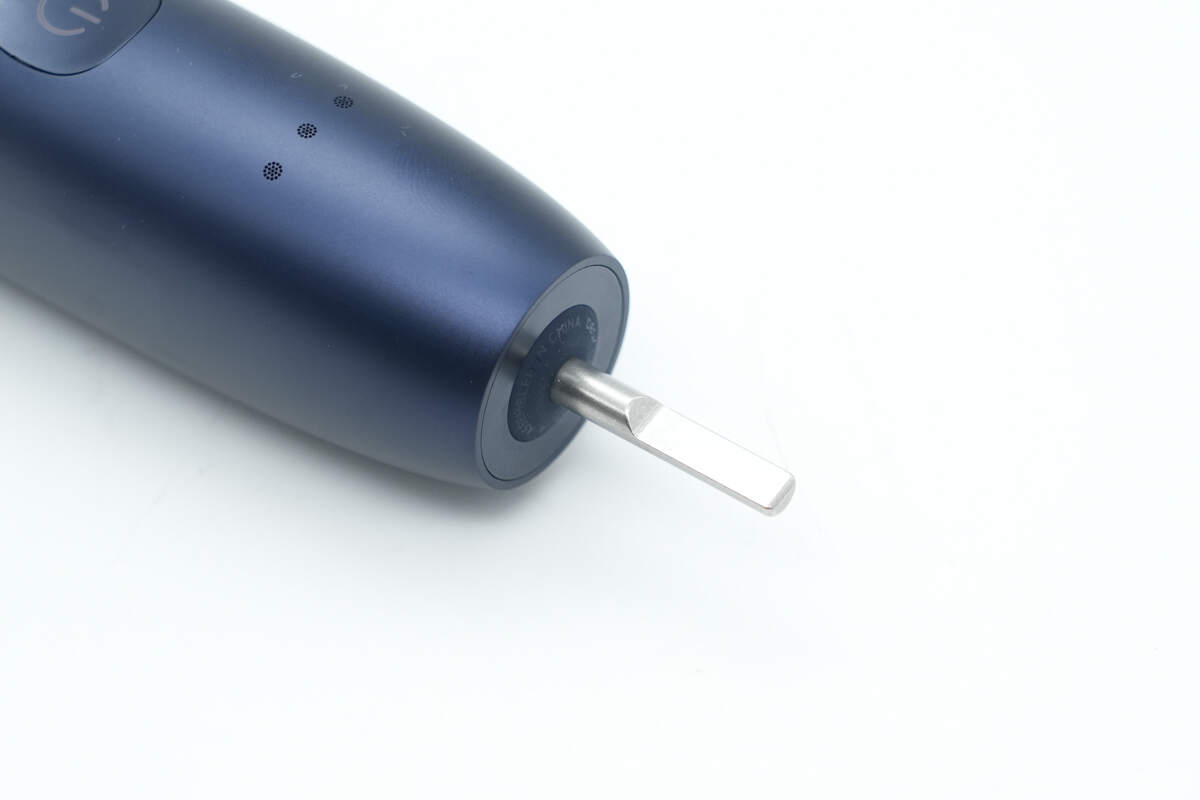
Close-up of the motor shaft.
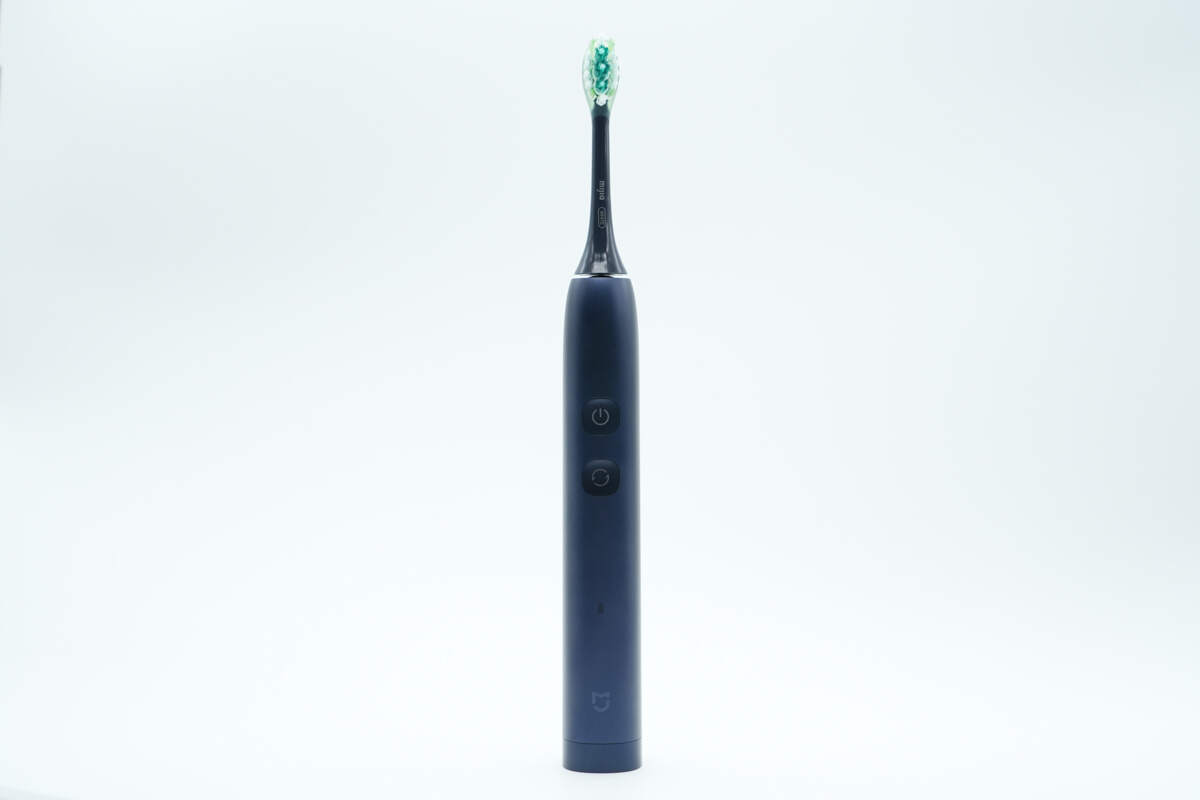
Overview of the assembled toothbrush handle and brush head.
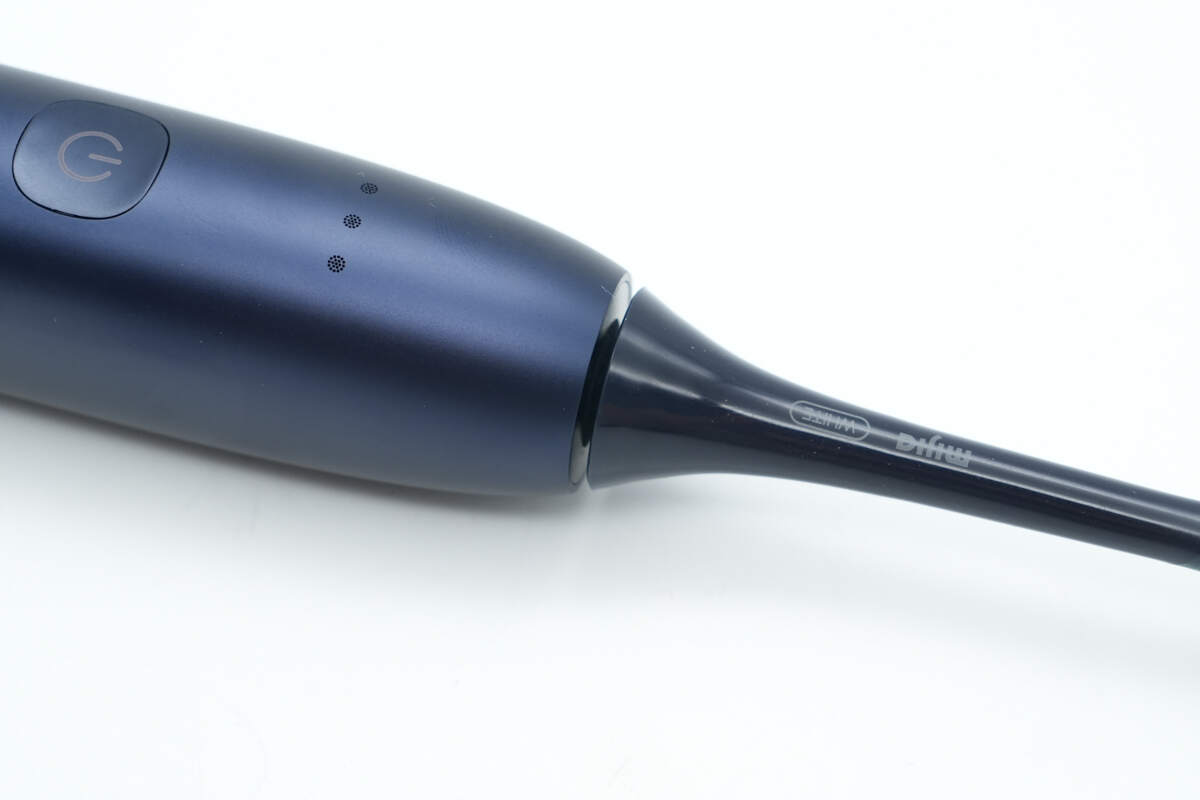
There is a gap between the handle and the brush head to prevent contact during high-frequency vibrations, ensuring stable motor performance.
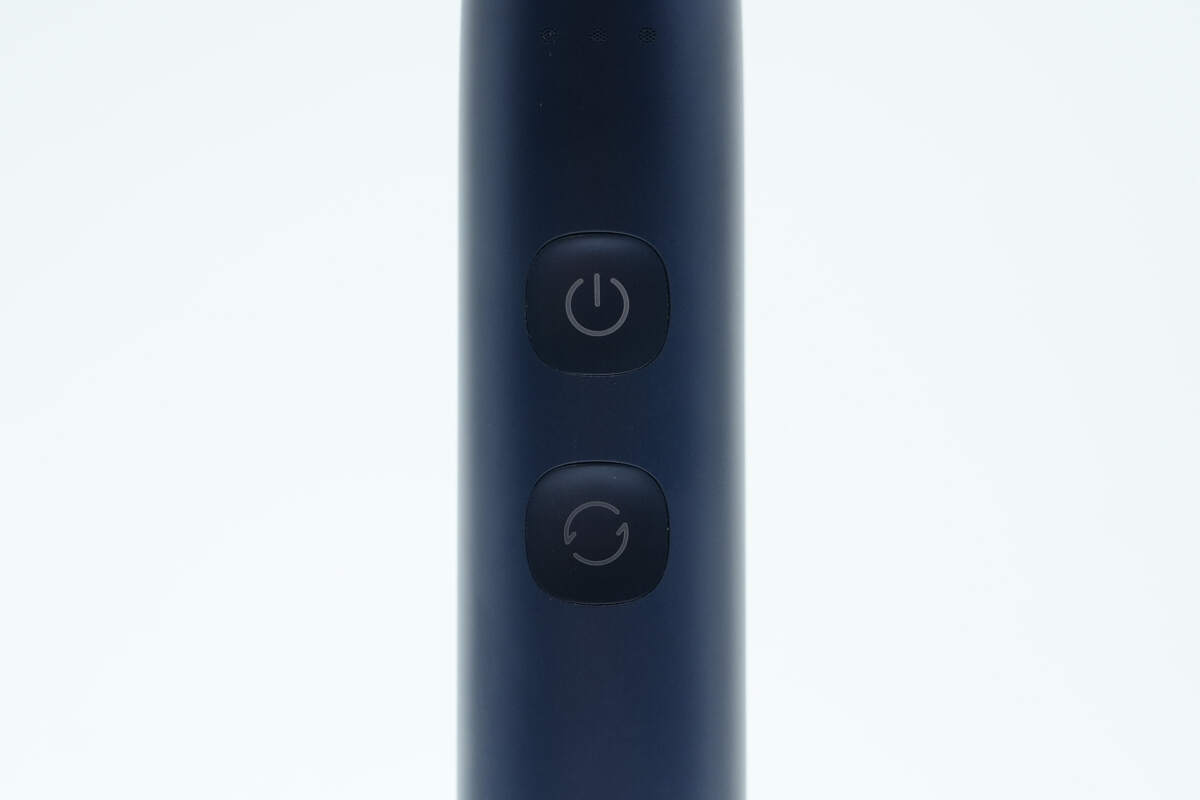
The front features a power button and a mode button. A short press on the mode button cycles through four working modes. Additional personalized modes can be added via the app.
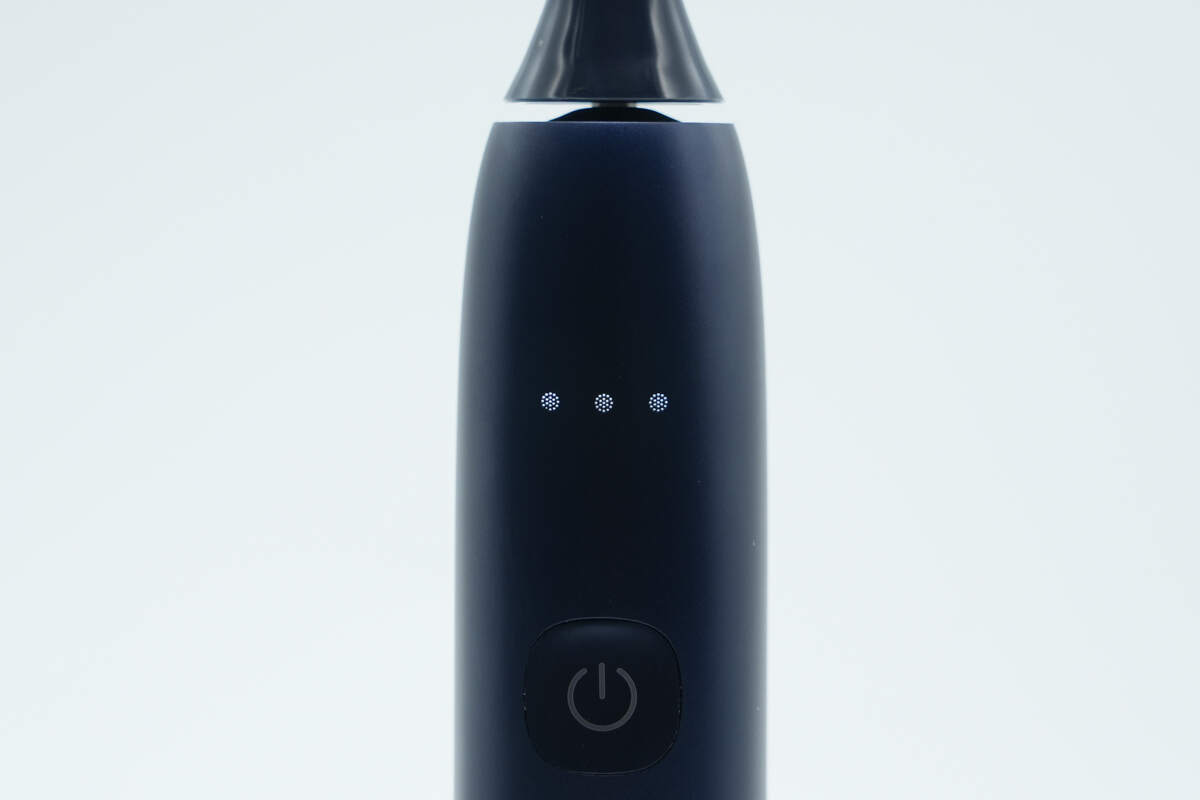
Above the buttons are the indicator lights for the working modes.
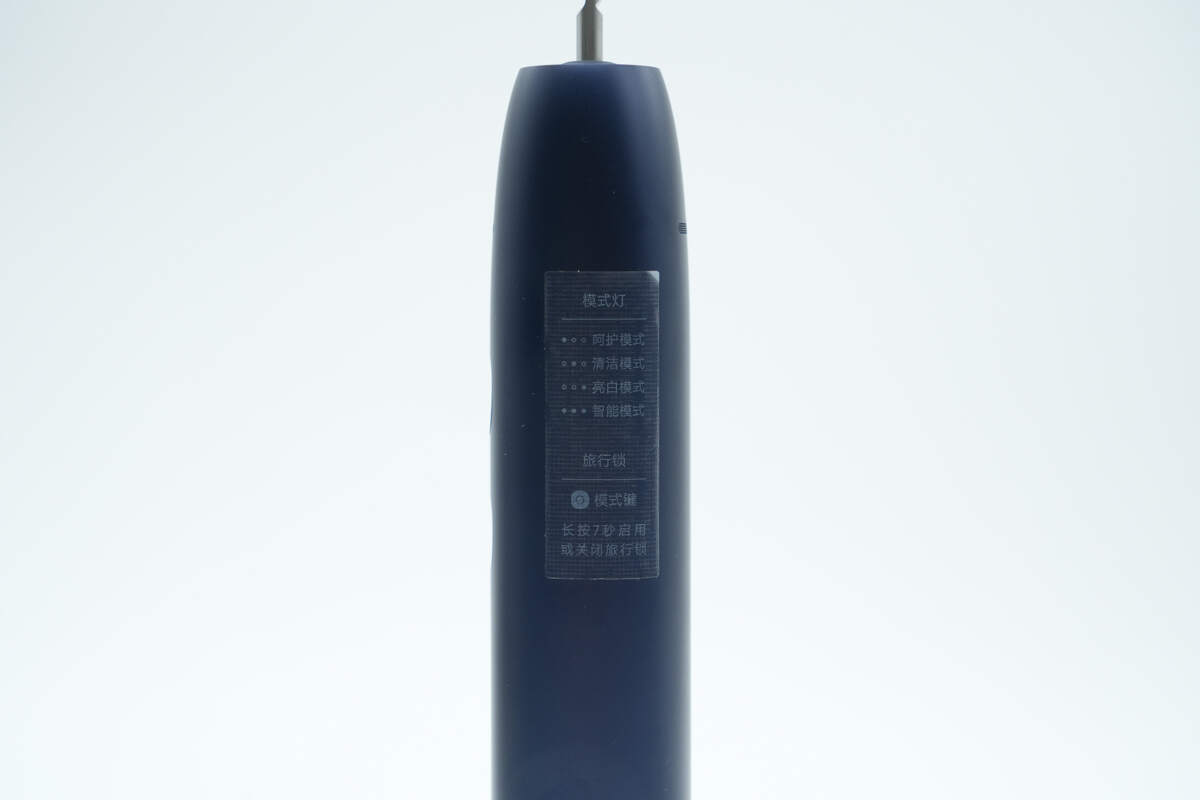
A sticker on the side shows the working modes corresponding to the indicator lights, along with operation instructions.
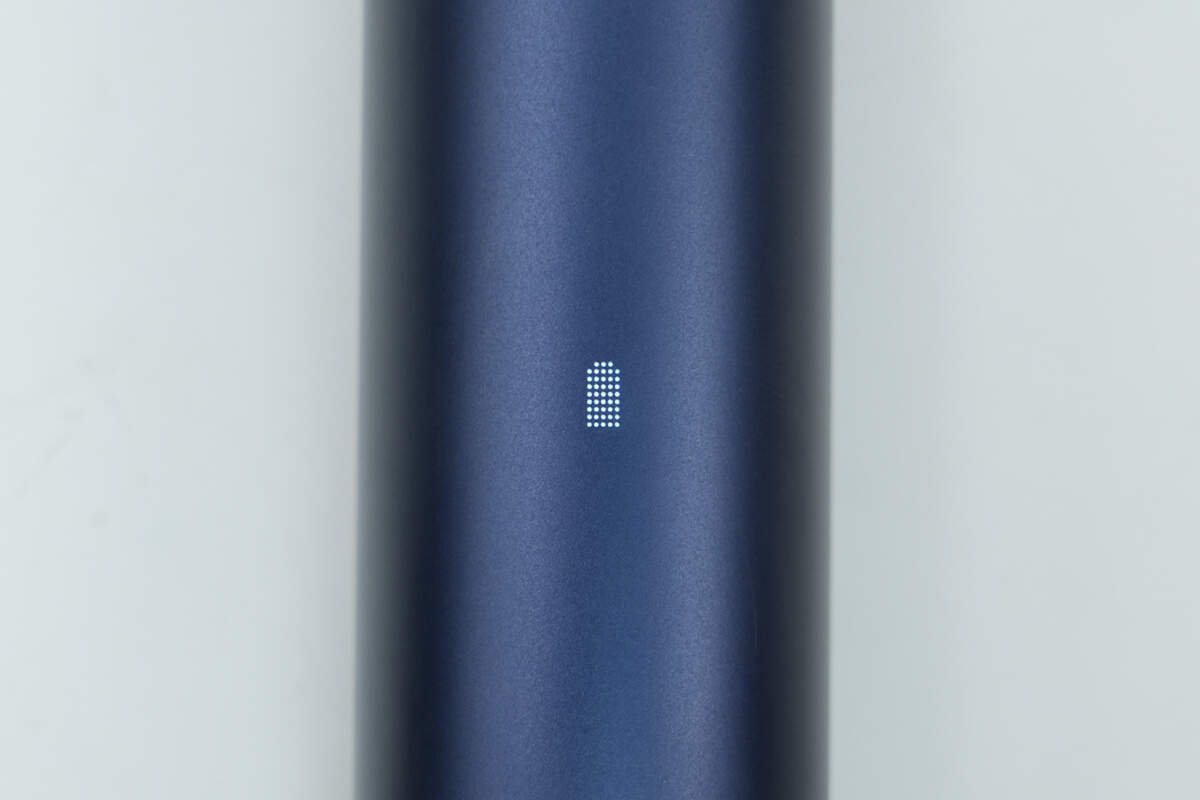
Below the buttons is the battery indicator light. While charging, it shows a white breathing light. When fully charged or with more than 20% battery, the light stays solid white. Between 5% and 20%, it flashes red. Below 5%, the red light flashes for 3 seconds, then turns off, and the device cannot be powered on.
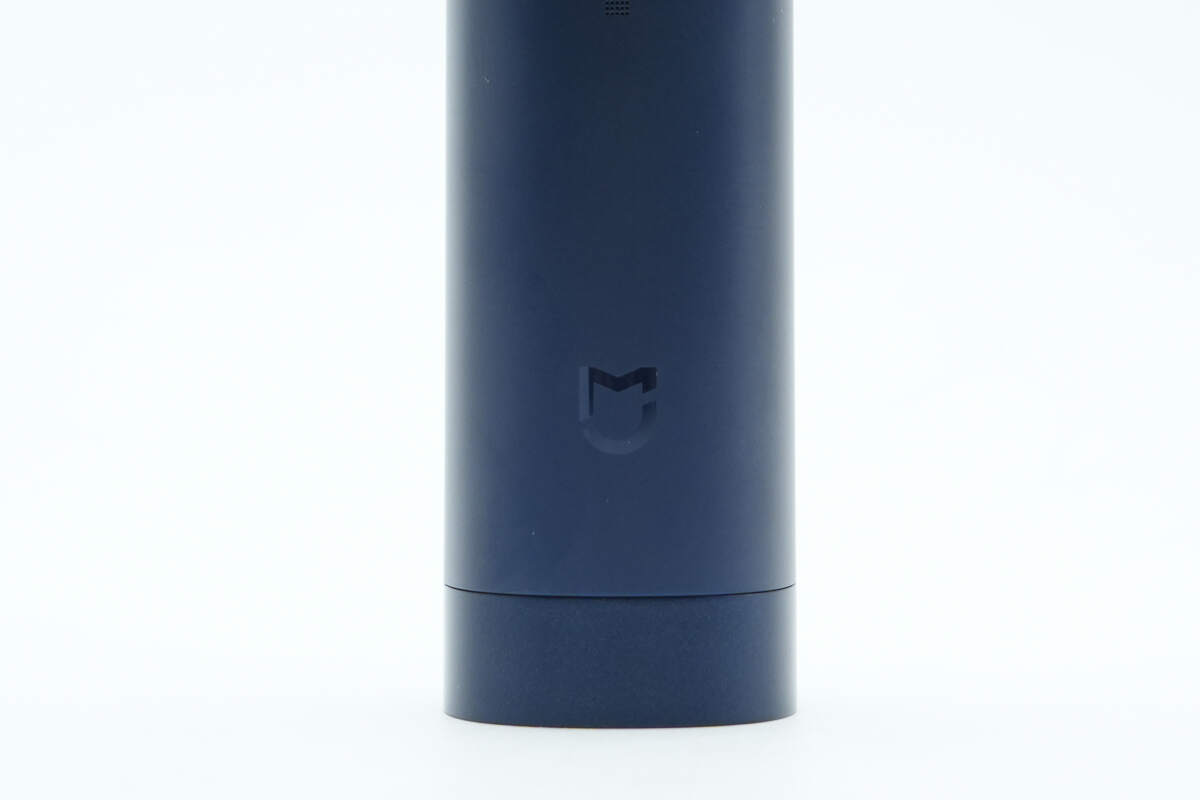
At the bottom is the brand logo.
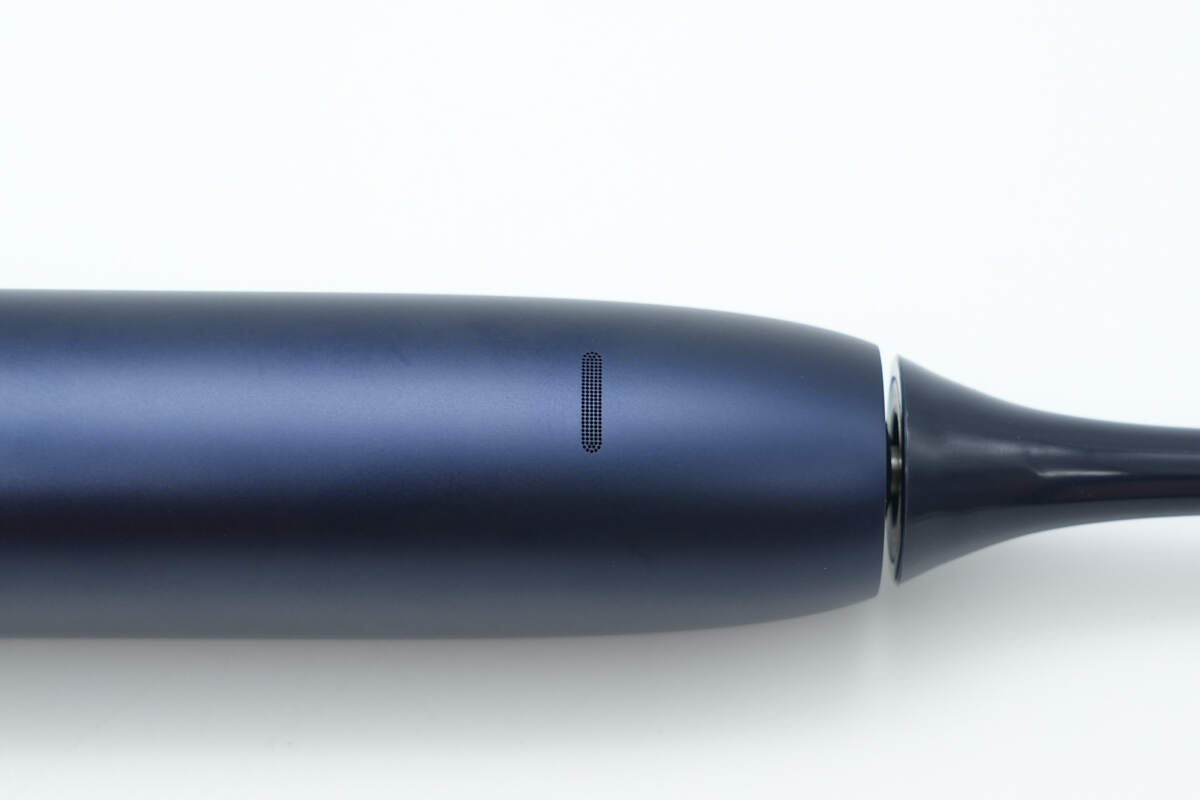
At the top of the back is the pressure sensor indicator light.
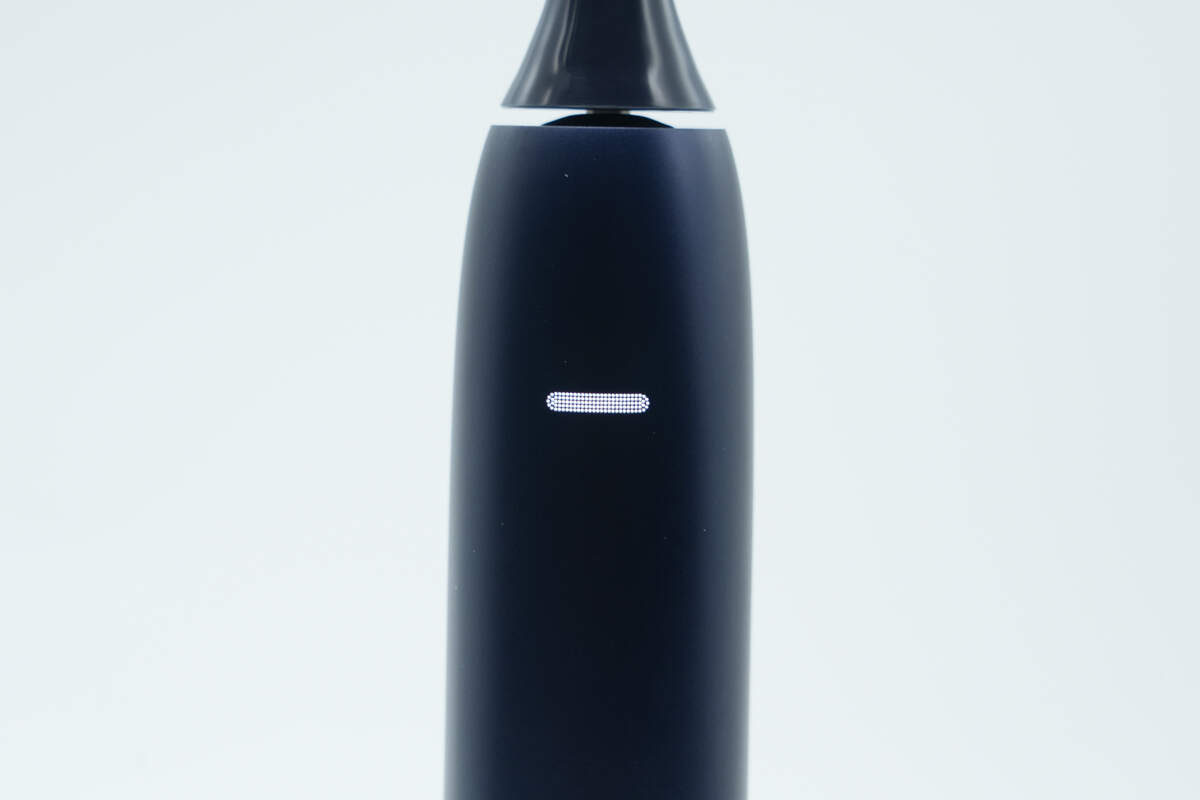
A flashing white light indicates insufficient brushing pressure.
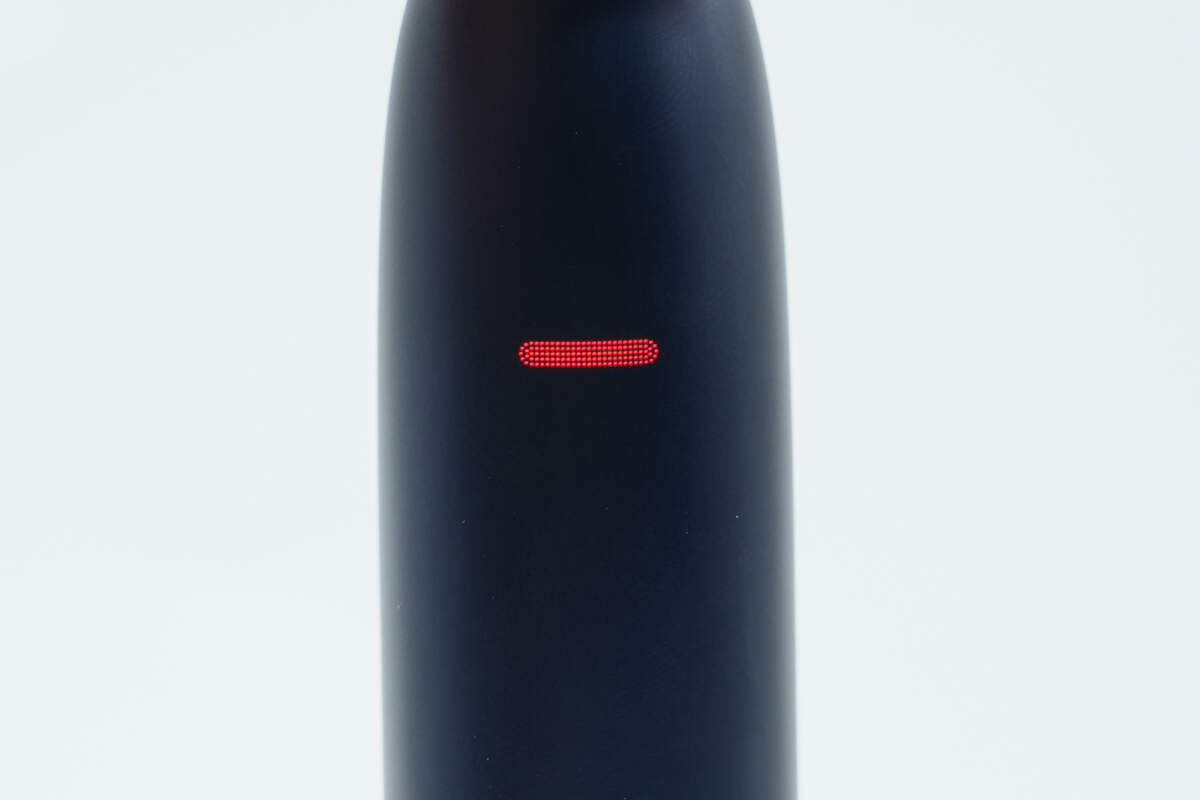
A flashing red light indicates excessive brushing pressure.
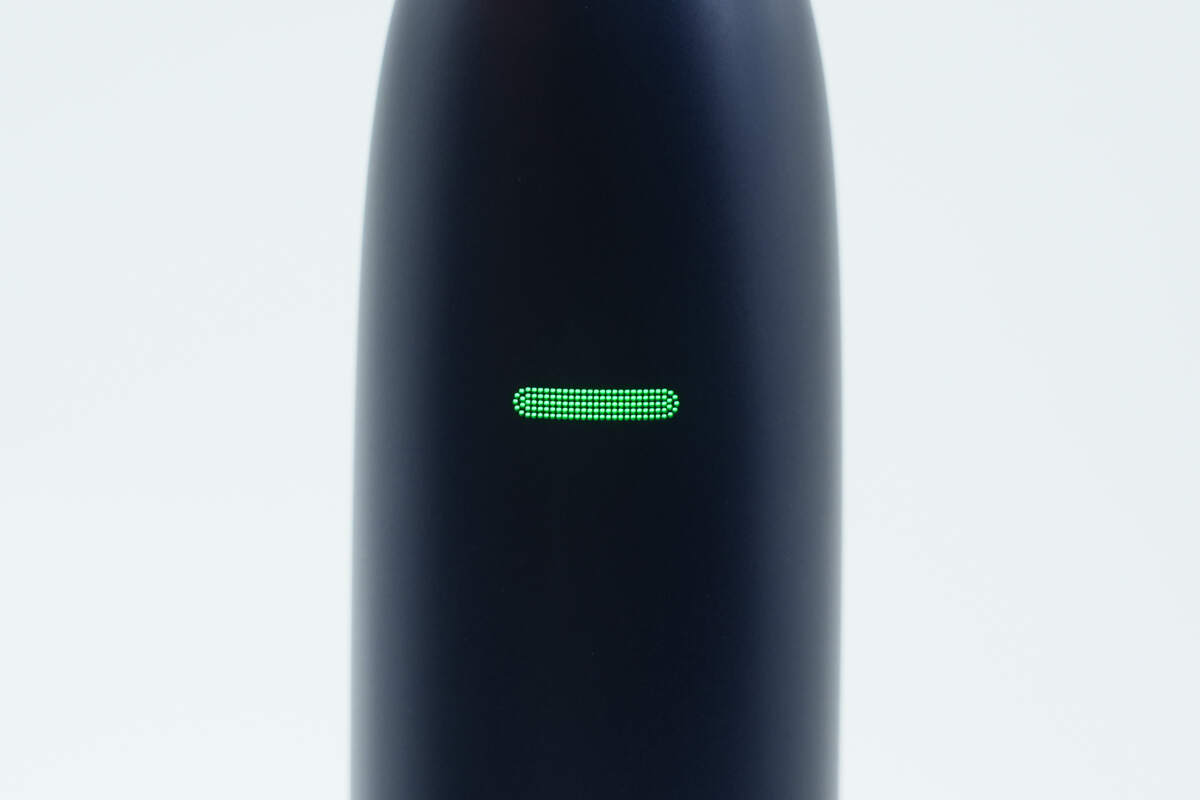
A solid green light indicates the brushing pressure is appropriate.
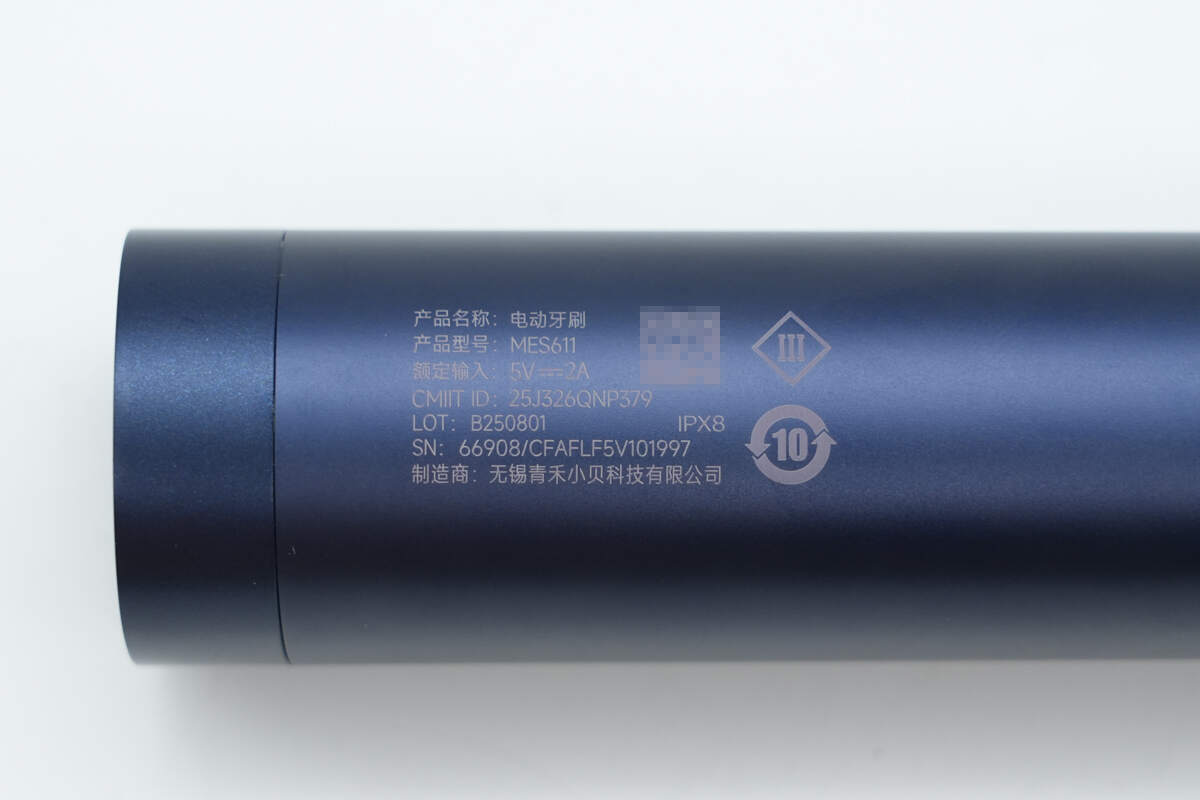
Model: MES611
Rated Input: 5V 2A
Waterproof Rating: IPX8
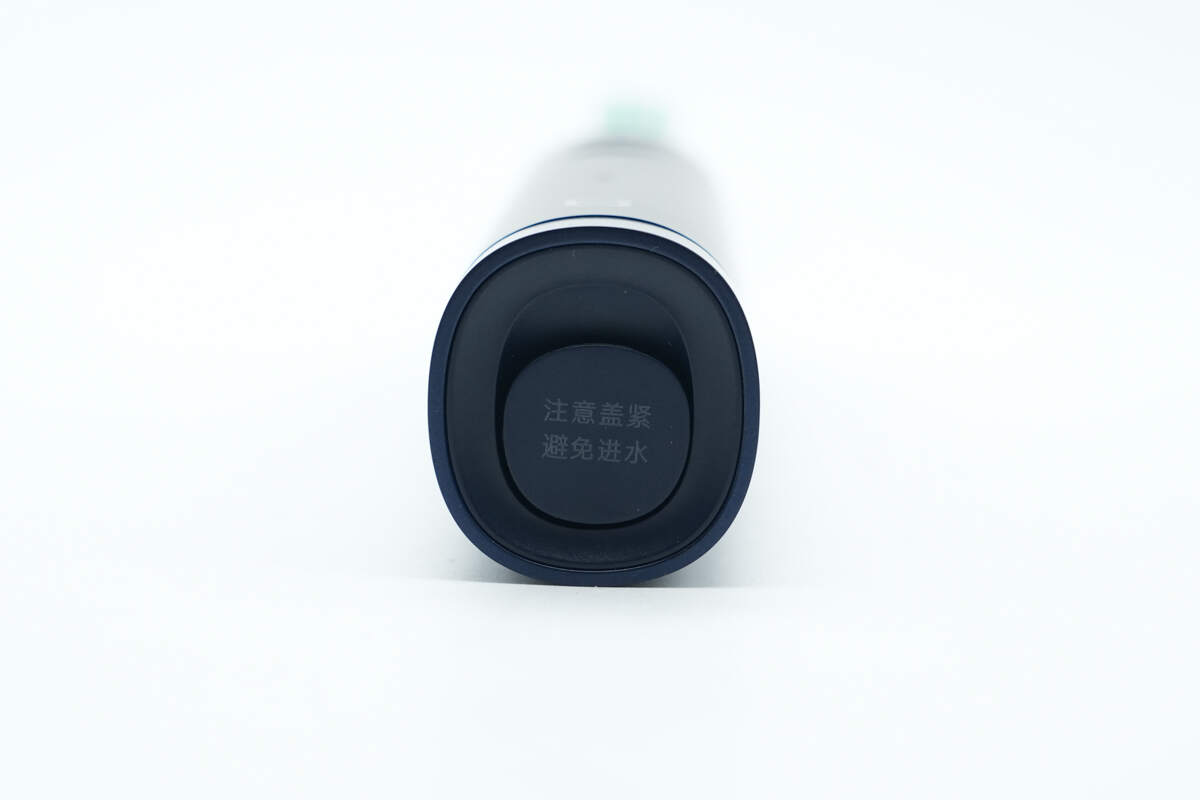
The charging port at the bottom is equipped with a dust cover.

The charging port is USB-C.
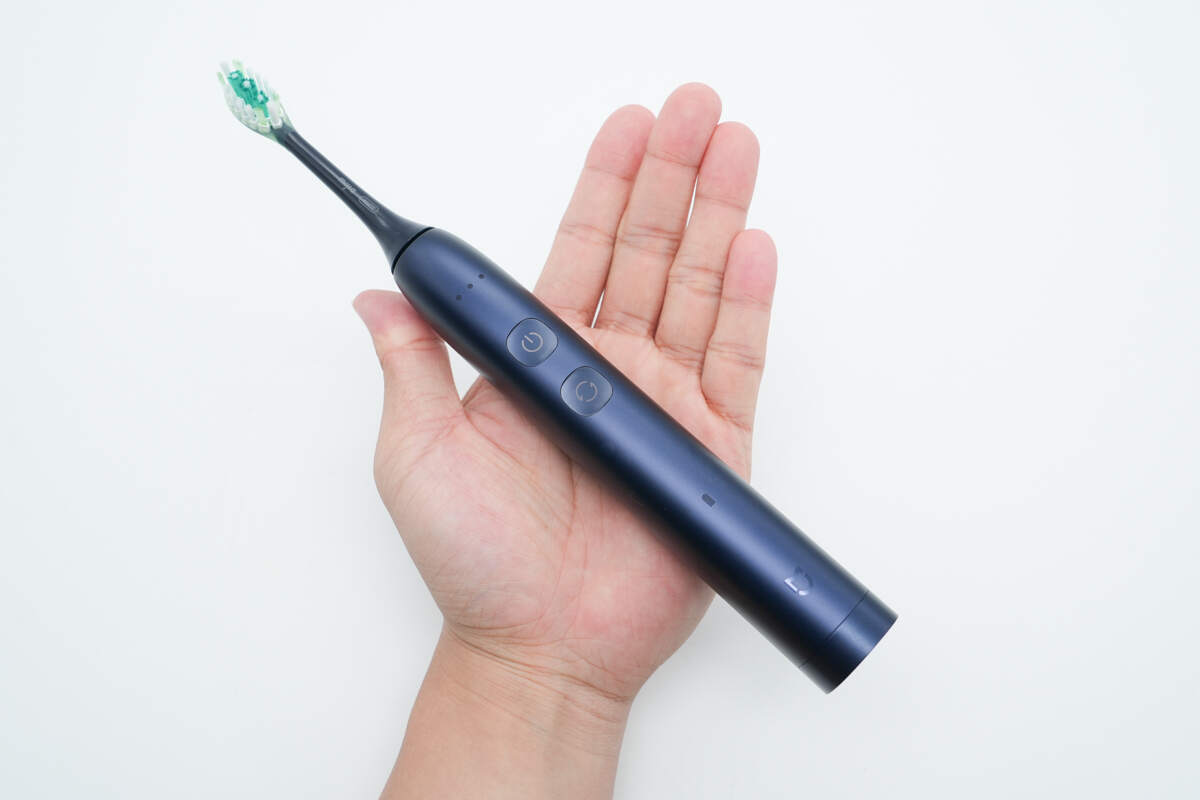
That's how big it is in the hand.
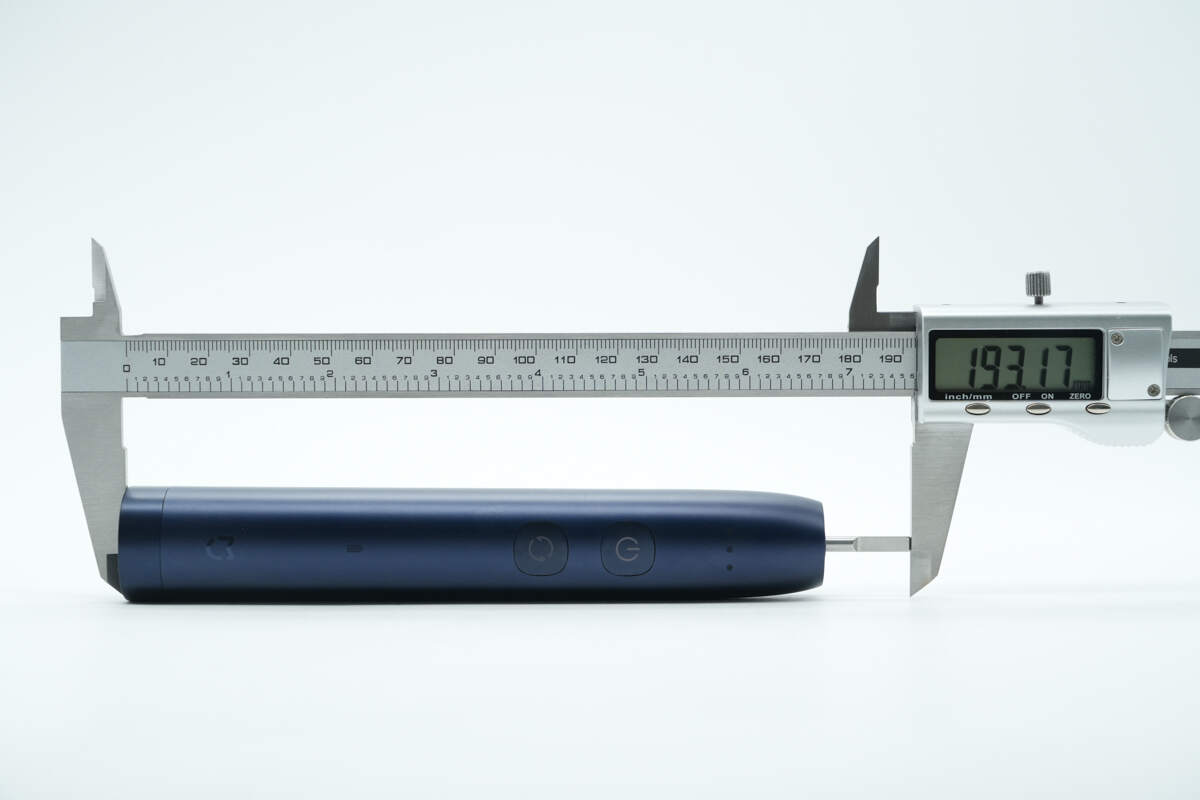
The length without the brush head is about 193.17 mm (7.61 inches).
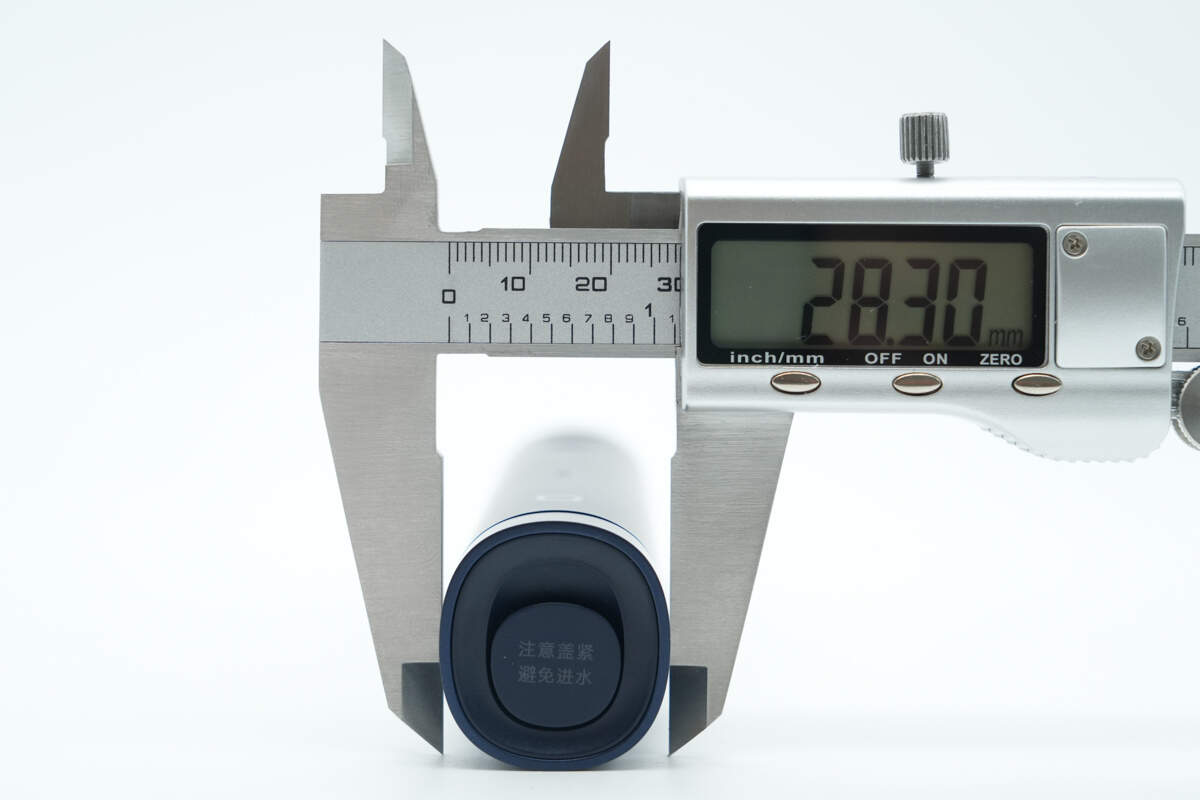
The width is about 28.3 mm (1.11 inches).
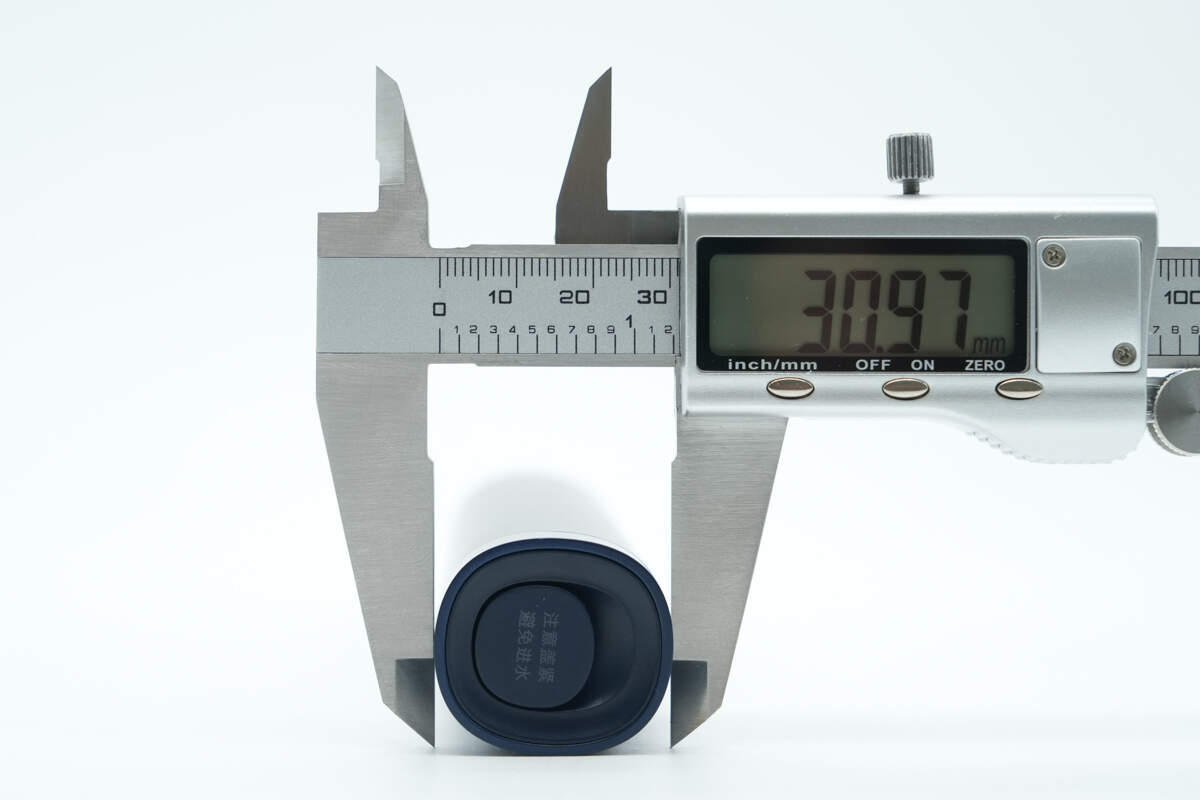
The thickness is about 30.97 mm (1.22 inches).
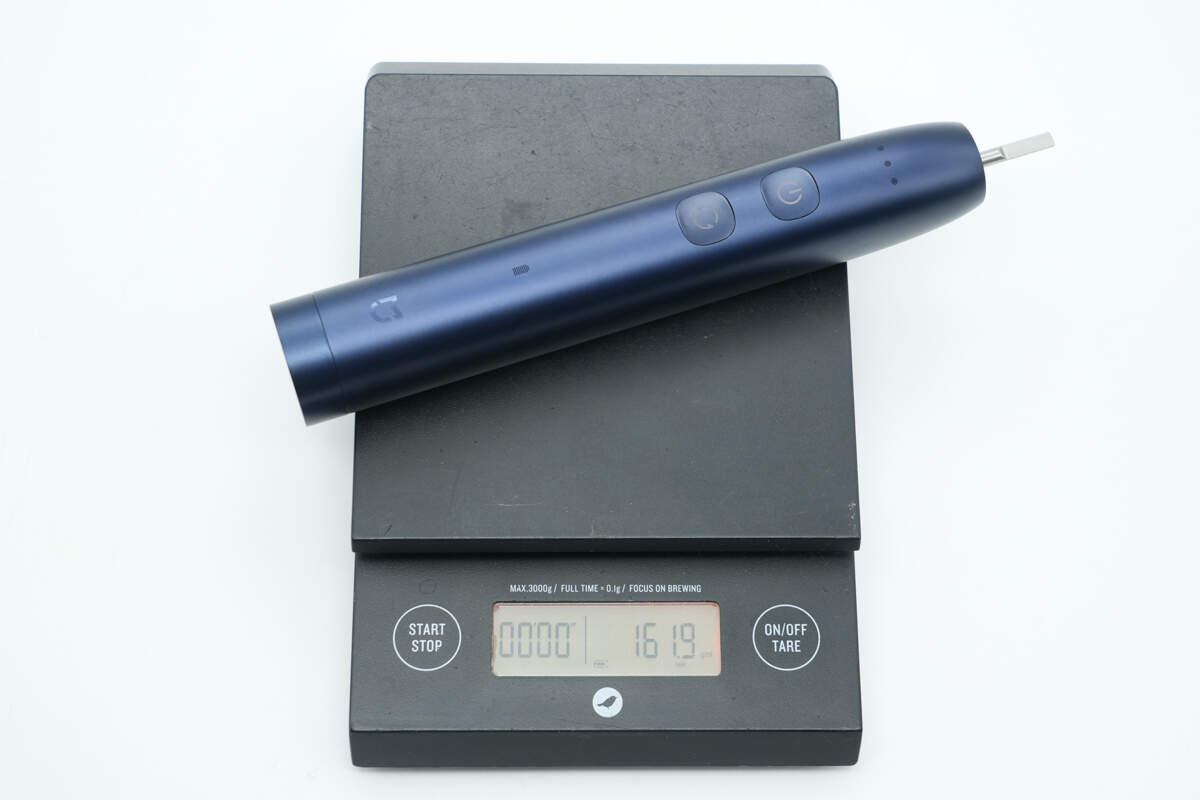
The weight is about 162 g (5.71 oz).
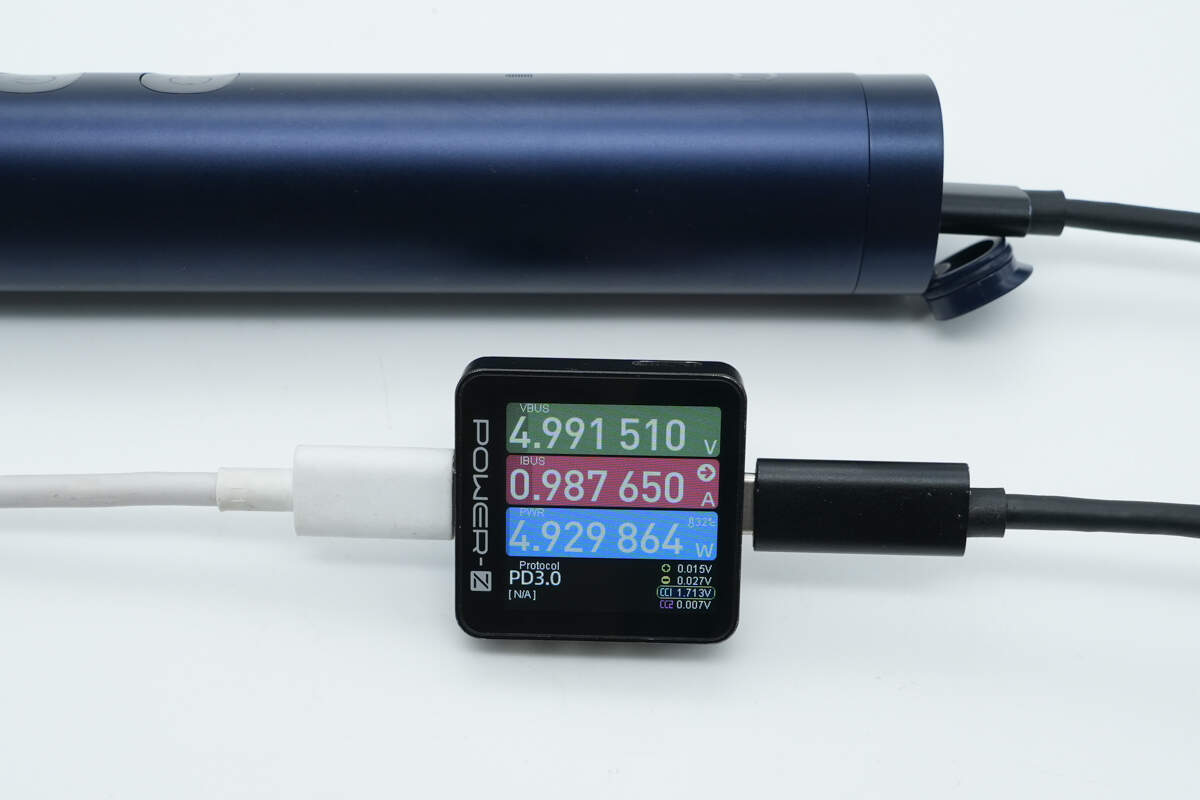
The input power during charging is about 4.93W.
Teardown
Next, let's take it apart to see its internal components and structure.
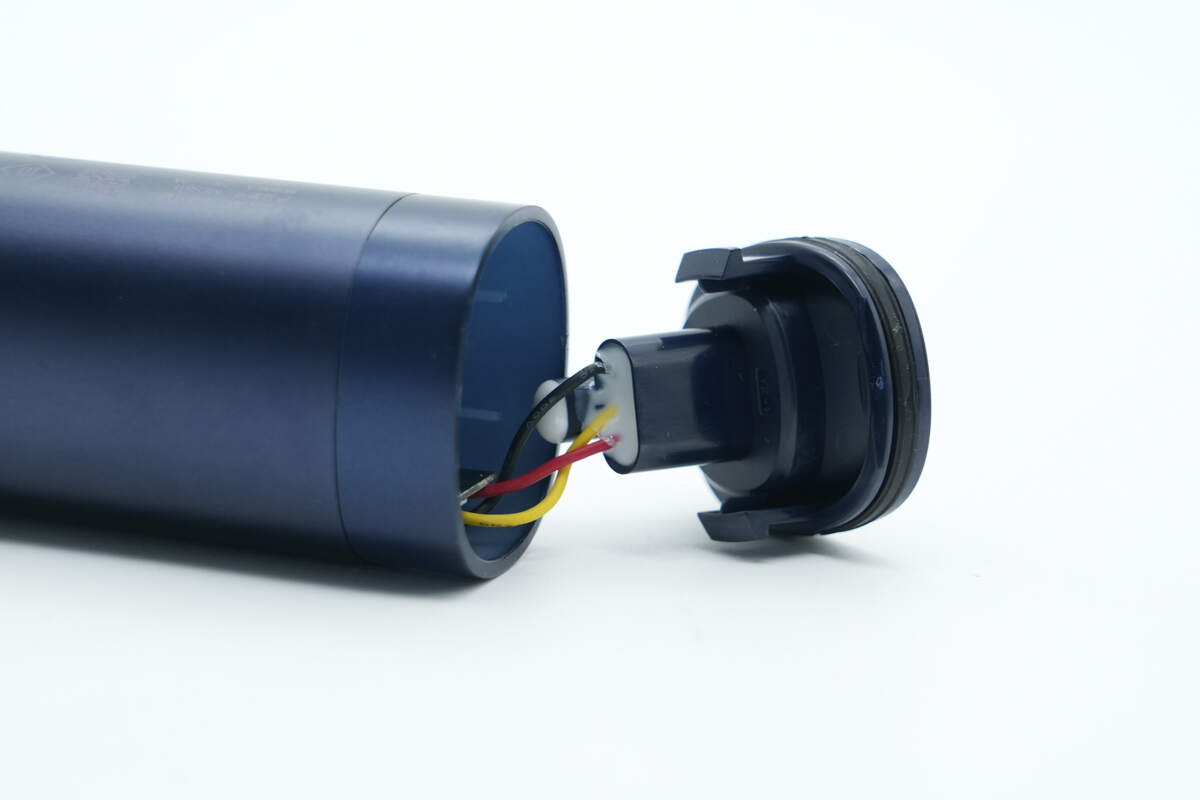
Remove the bottom cover is which is secured by clips. There is a sealing ring on the side.
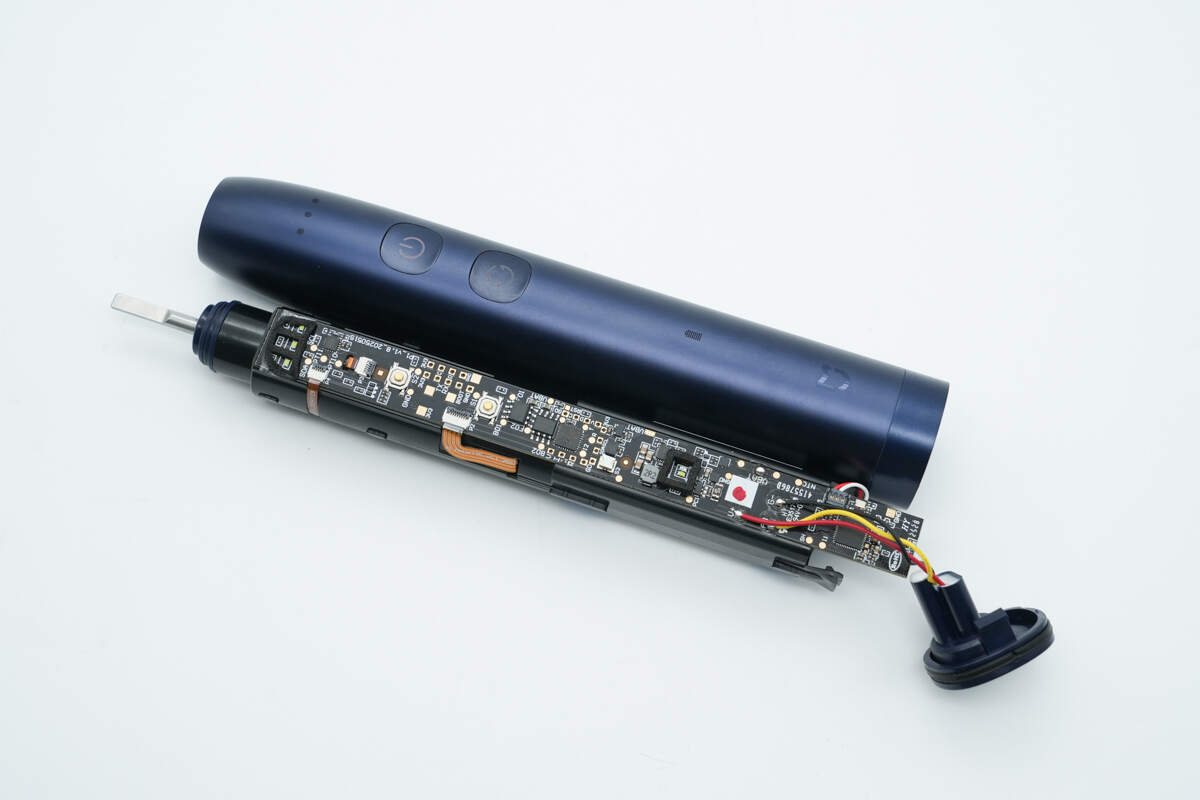
Remove the module from the housing.
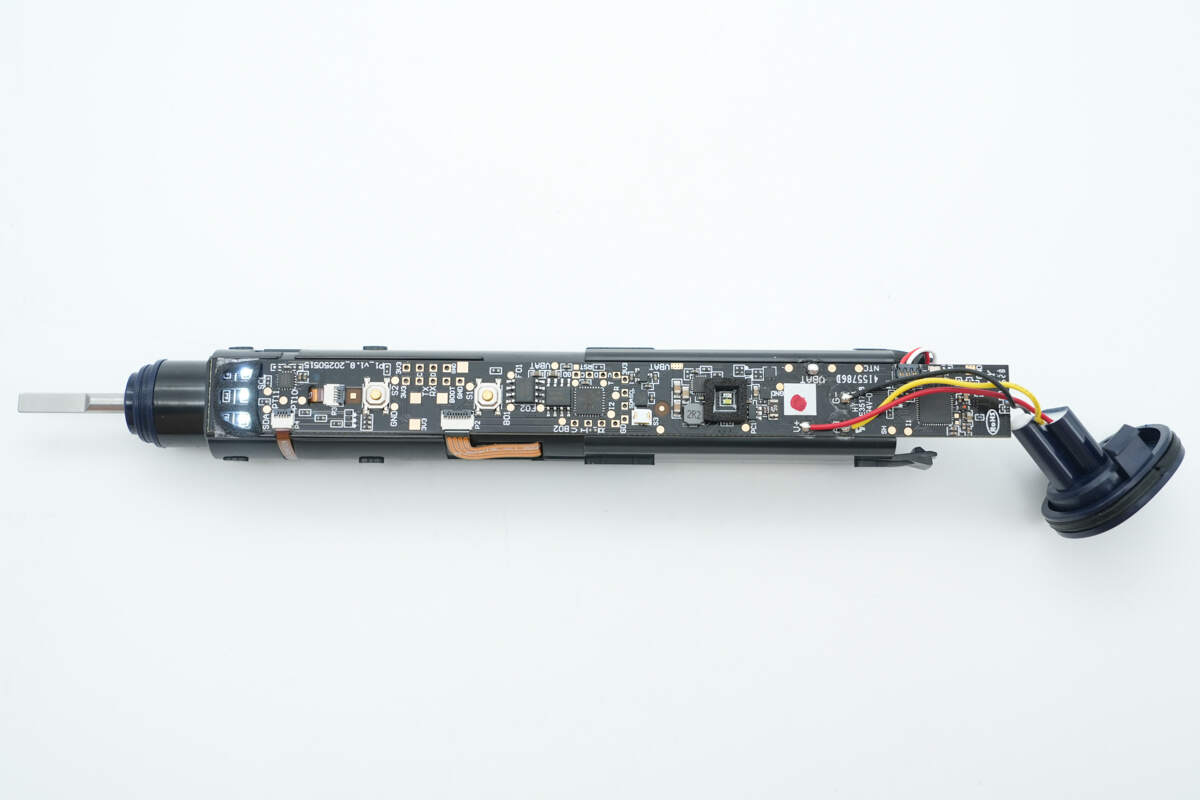
The front of the module features the PCB. The USB-C port is soldered to the PCB using red, yellow, and black wires.
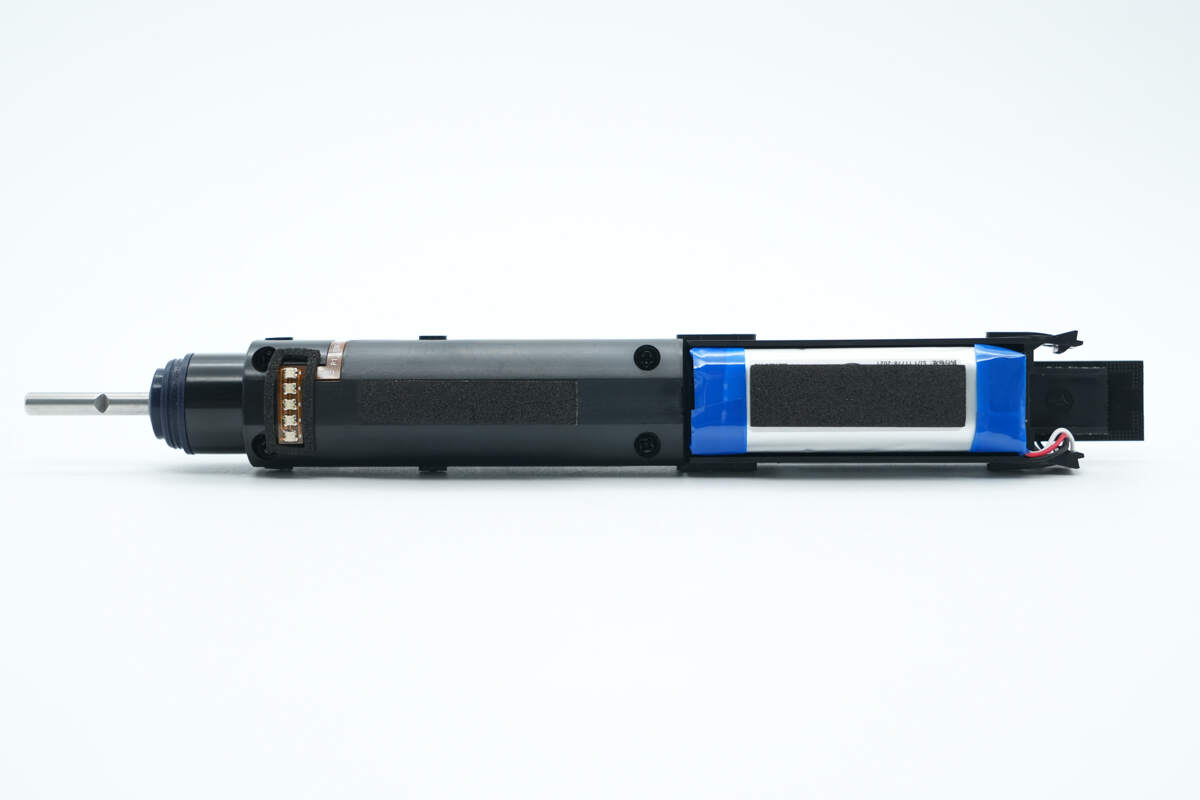
On the back are the battery pack and motor. The motor is fully enclosed in a plastic casing, and protective foam pads are attached to both the battery cell and the plastic casing.
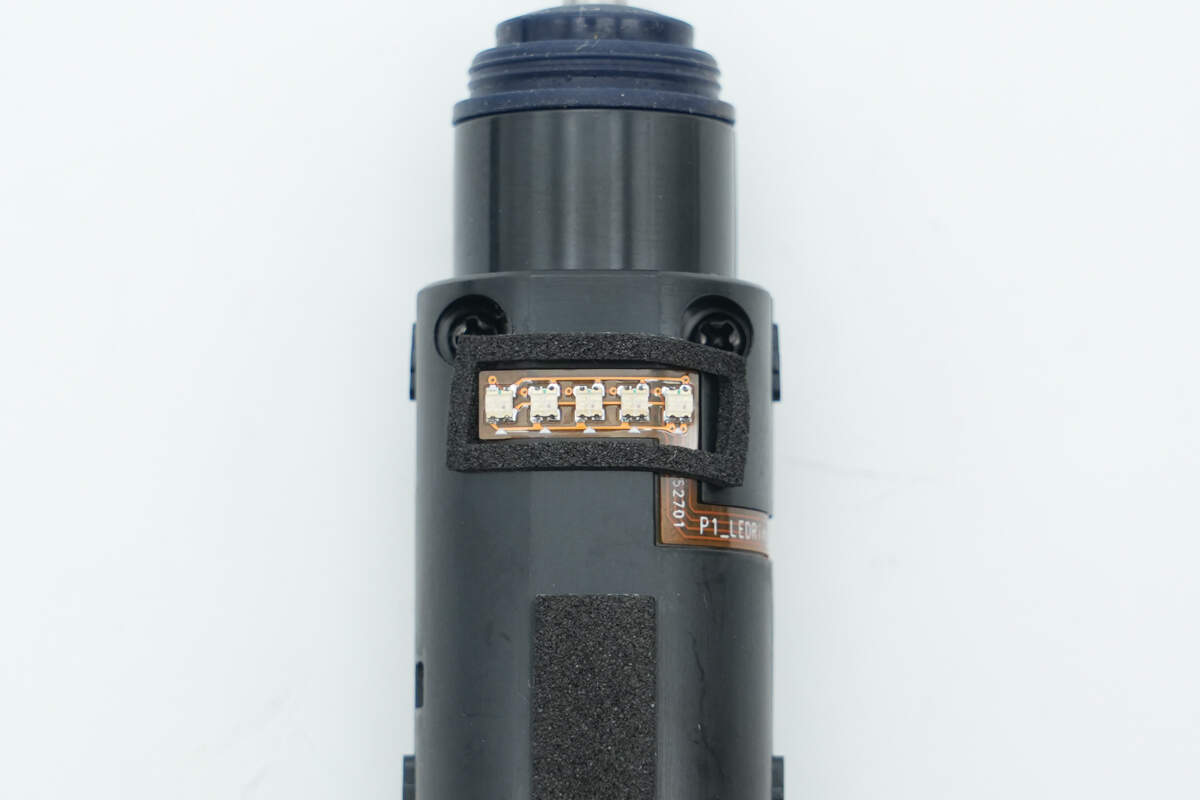
Close-up of the pressure sensor indicator light.

The PCB, battery pack, motor, and other components are secured by a plastic frame.
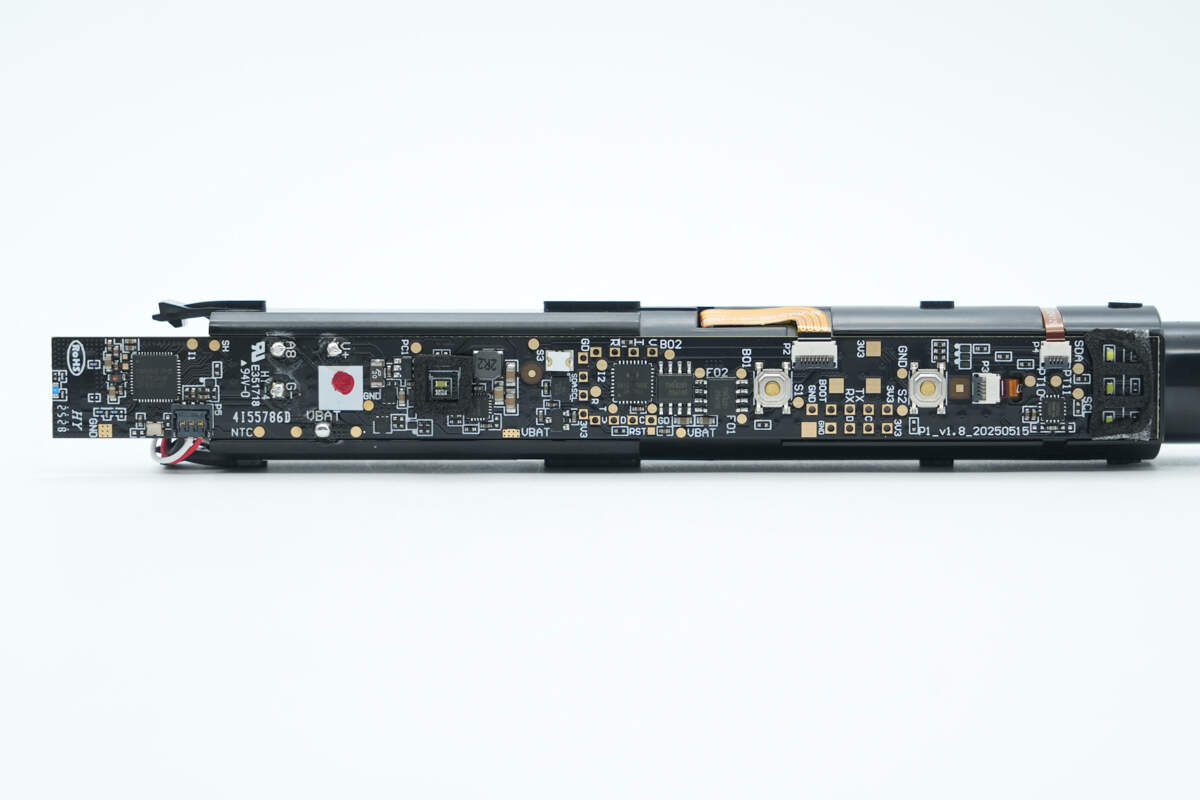
The battery pack connects to the PCB via a plug-and-play connector. The motor, pressure sensor, and pressure indicator light are also connected to the PCB using plug-and-play connectors.
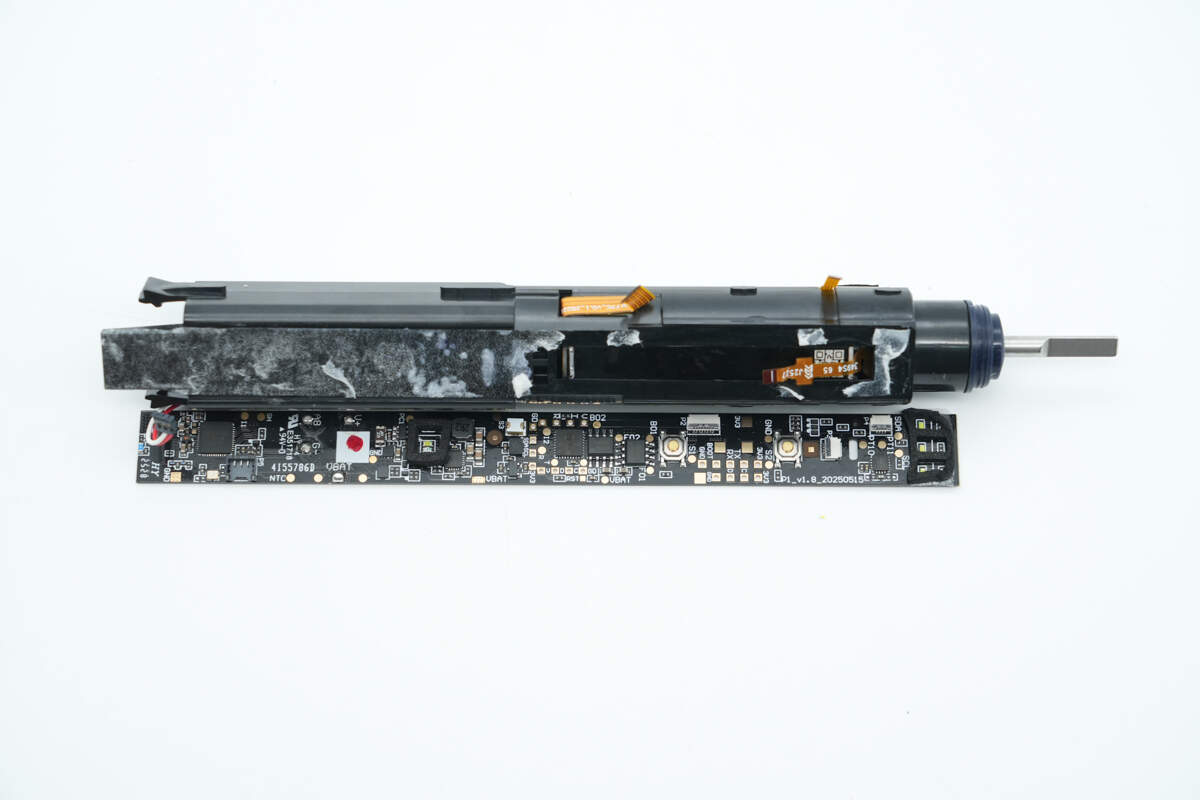
The wires and ribbon cables are disconnected to remove the PCB. Double-sided tape on the plastic frame is used to secure the PCB.
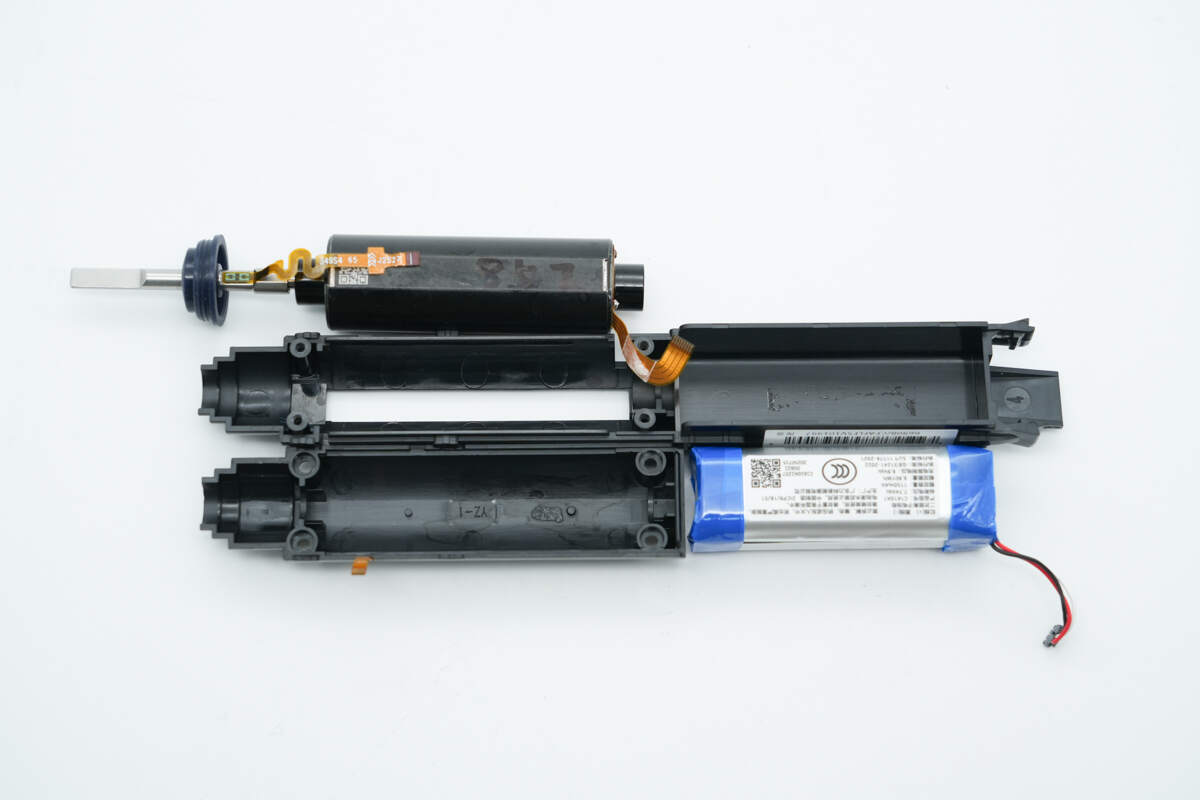
Remove the battery pack and motor.
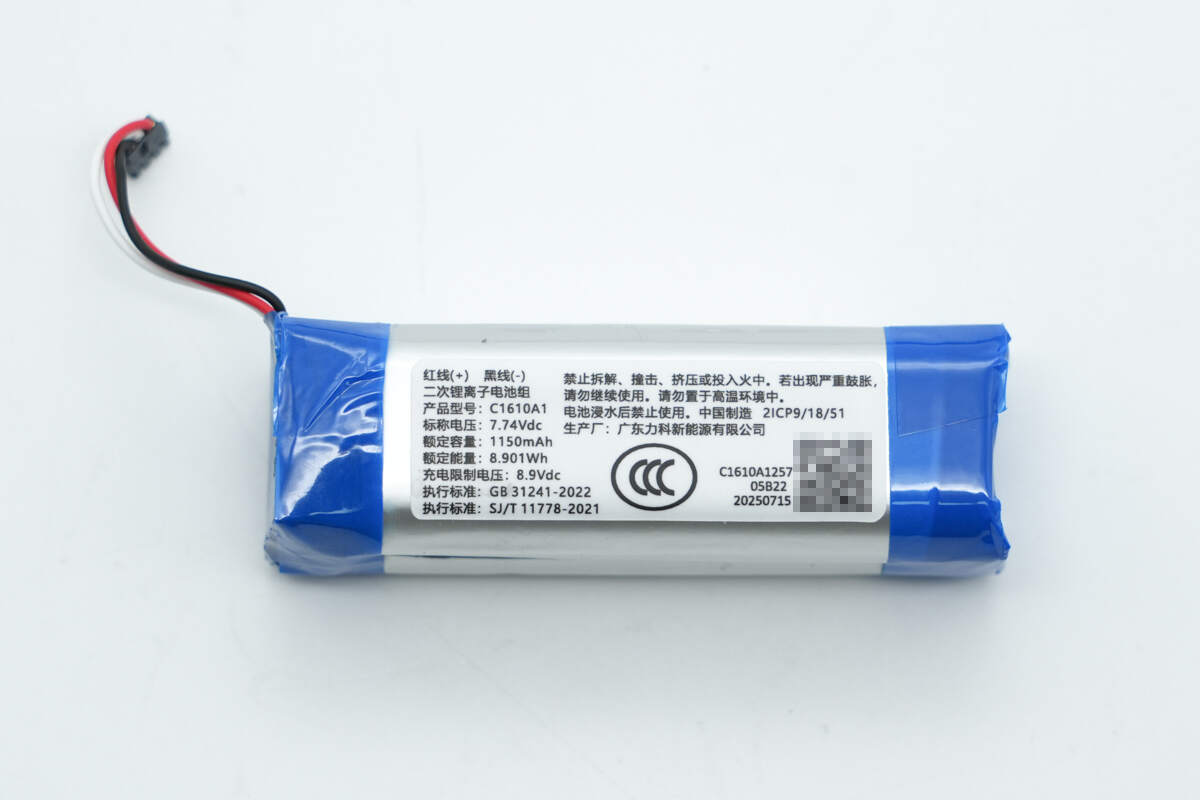
Product Model: C1610A1
Nominal Voltage: 7.74 Vdc
Rated Capacity: 1150 mAh
Rated Energy: 8.901 Wh
Charging Limit Voltage: 8.9 Vdc
It has passed the CCC certification.
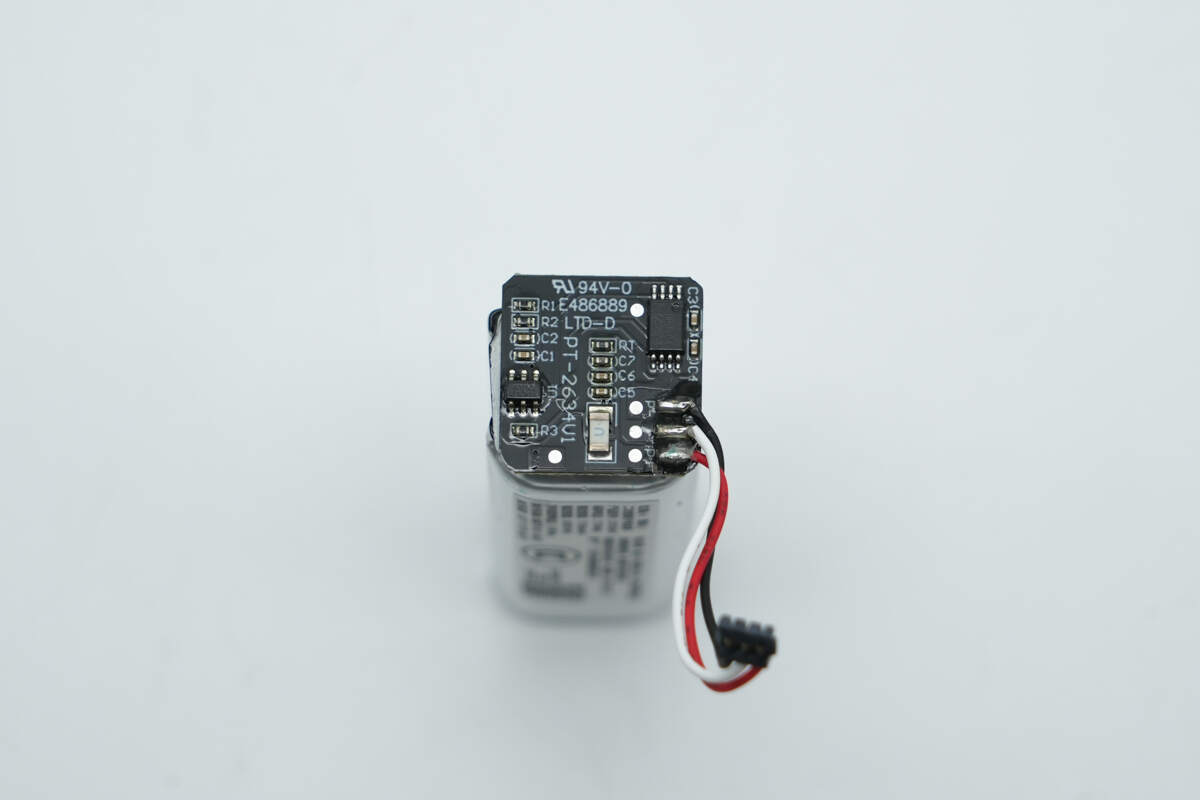
There is a lithium battery protection PCB at the end of the battery pack.
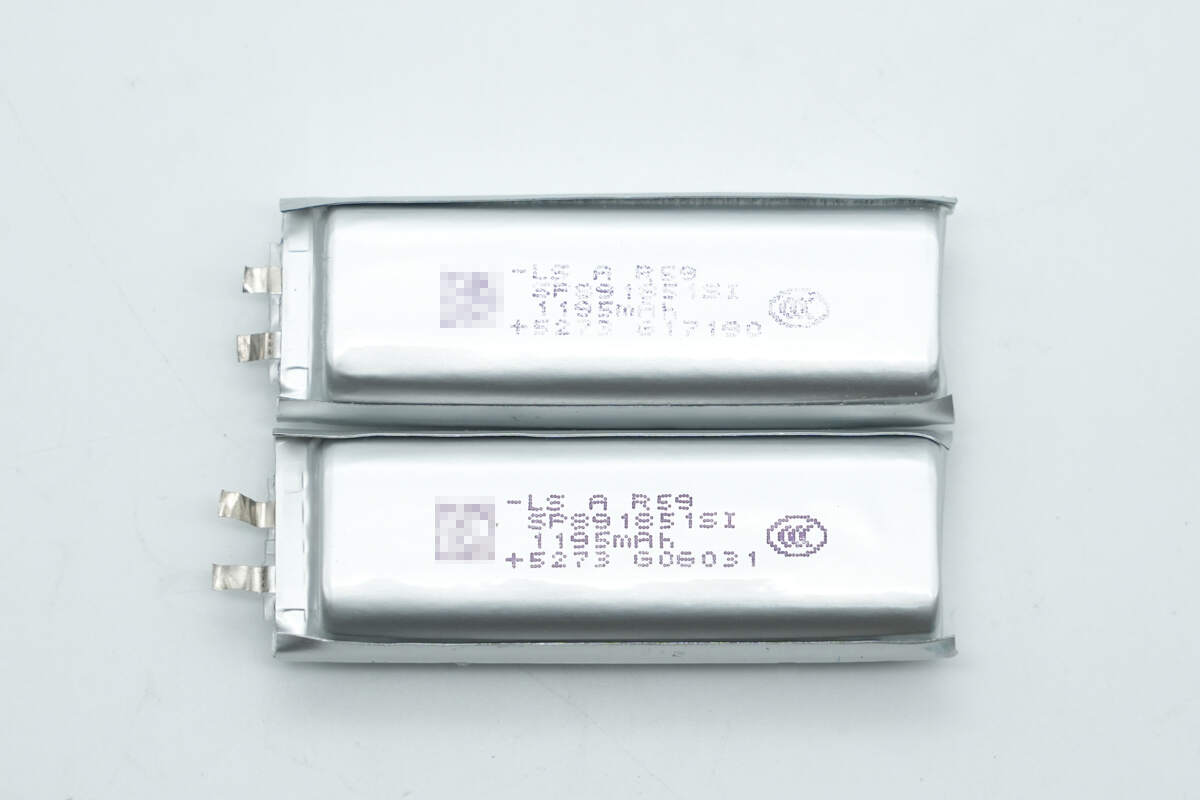
The battery pack is separated from the PCB, revealing that it consists of two battery cells. The cells are manufactured by LS, model SP891851SI, each with a capacity of 1195 mAh, a nominal voltage of 3.87 V, and a charging limit voltage of 4.45 V. The cells are CCC certified.
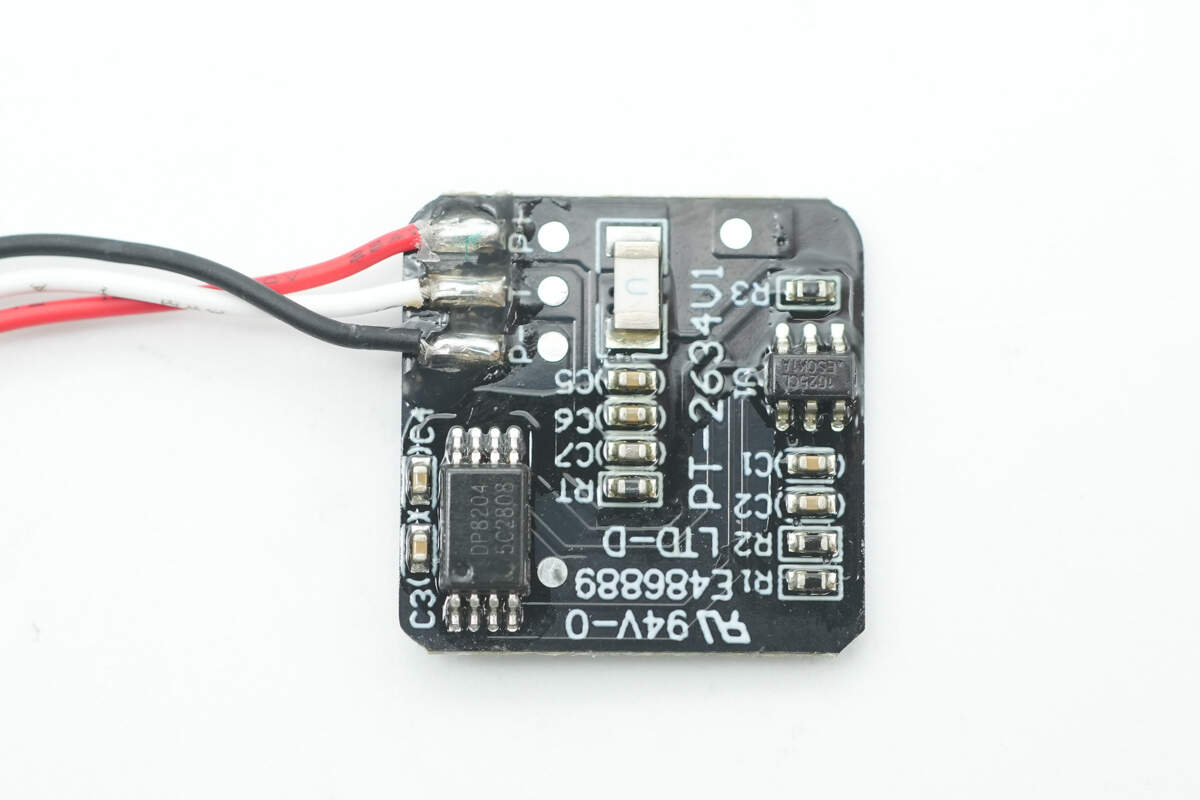
The front side of the lithium battery protection PCB features a lithium battery protection IC, battery protection MOSFETs, and an SMD fuse.
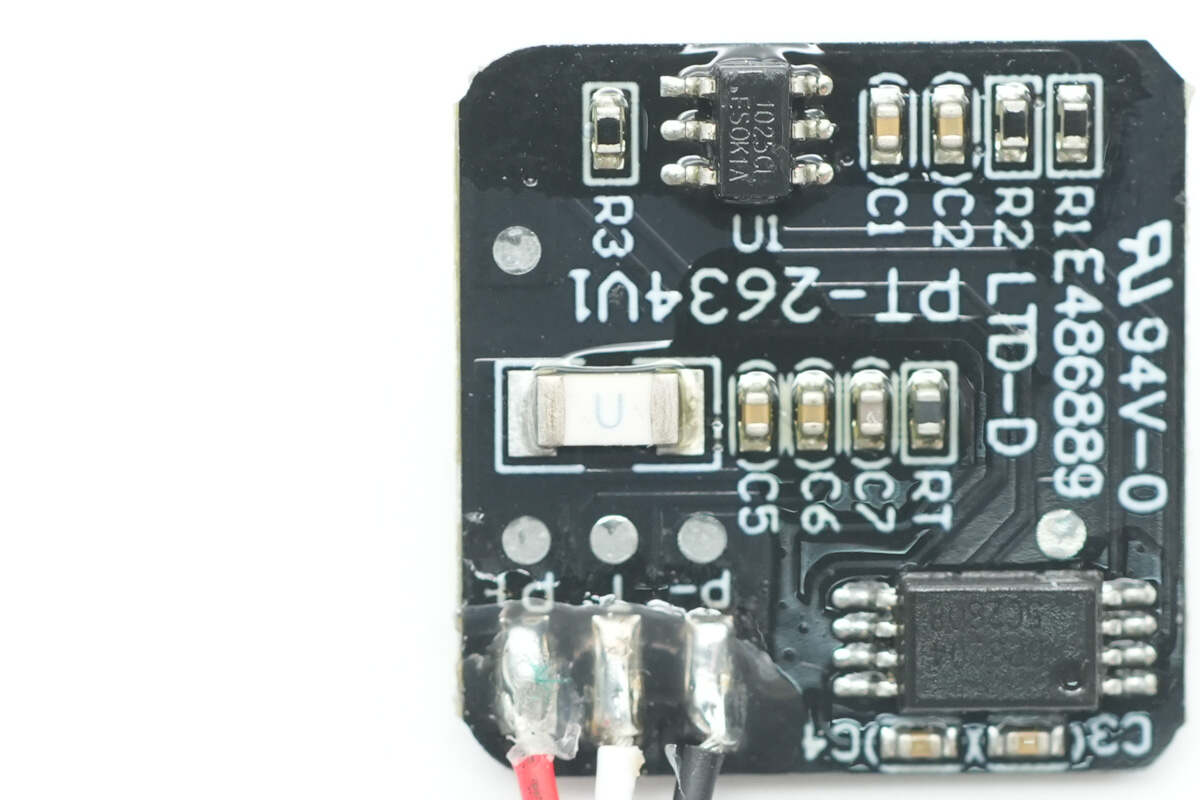
Close-up of the SMD fuse.
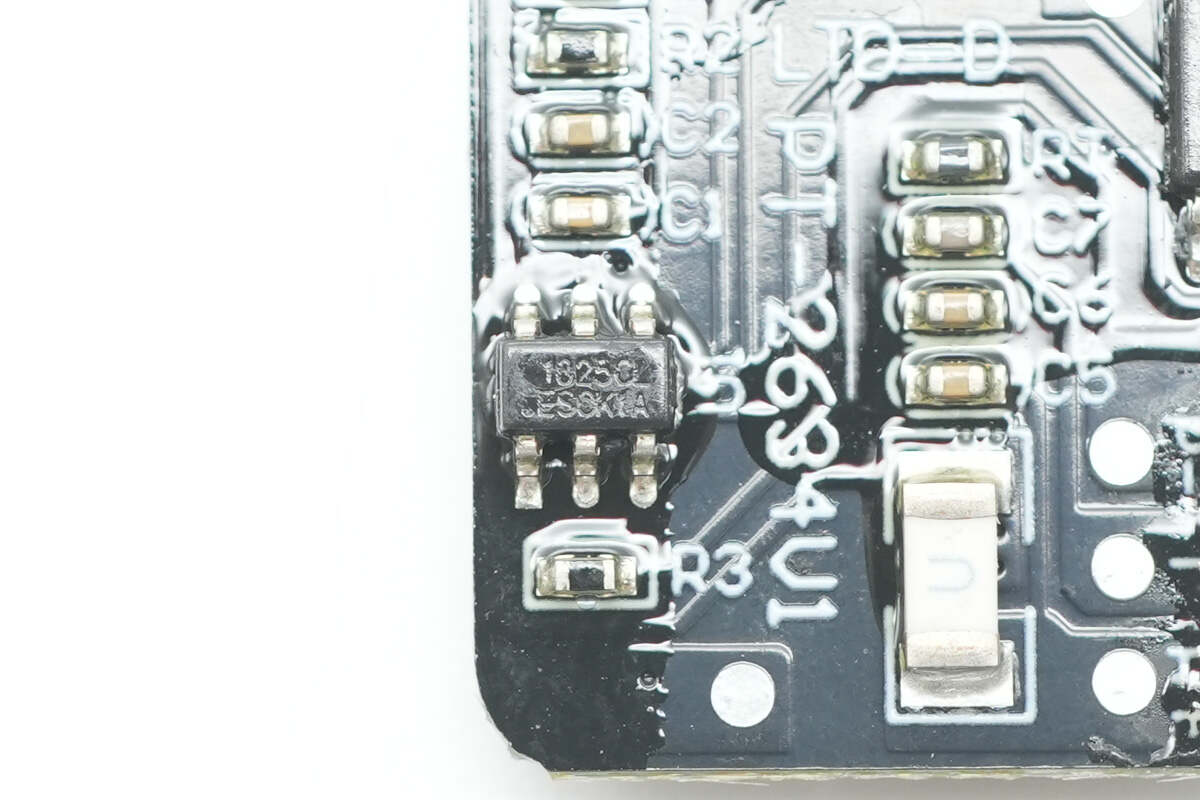
The lithium battery protection chip is marked with 1025CL.

The battery protection MOSFET is from Depuw, model DP8204. It is a dual N-MOSFET with a voltage rating of 20V and an on-resistance of 10.5 mΩ, housed in a TSSOP-8 package.
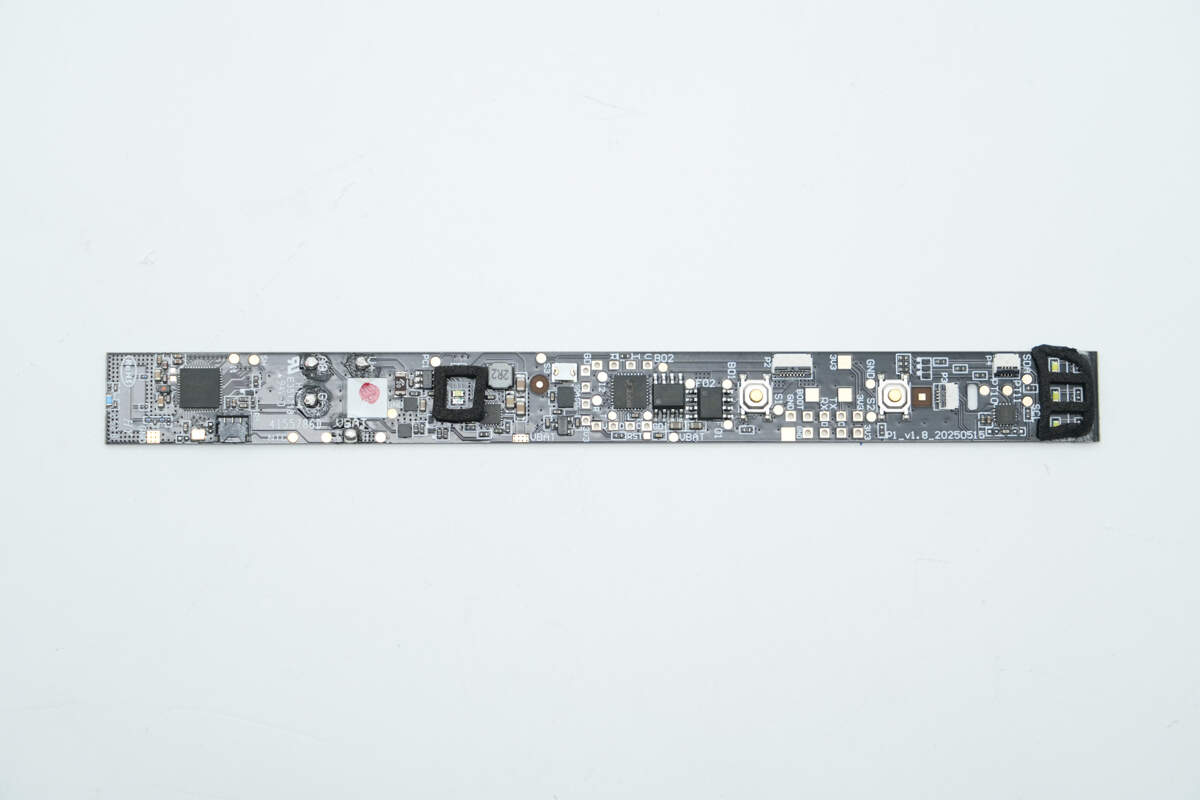
The front side of the main PCB contains components such as the Bluetooth SoC, battery charging IC, MCU, two motor driver chips, and a various sensing chip.
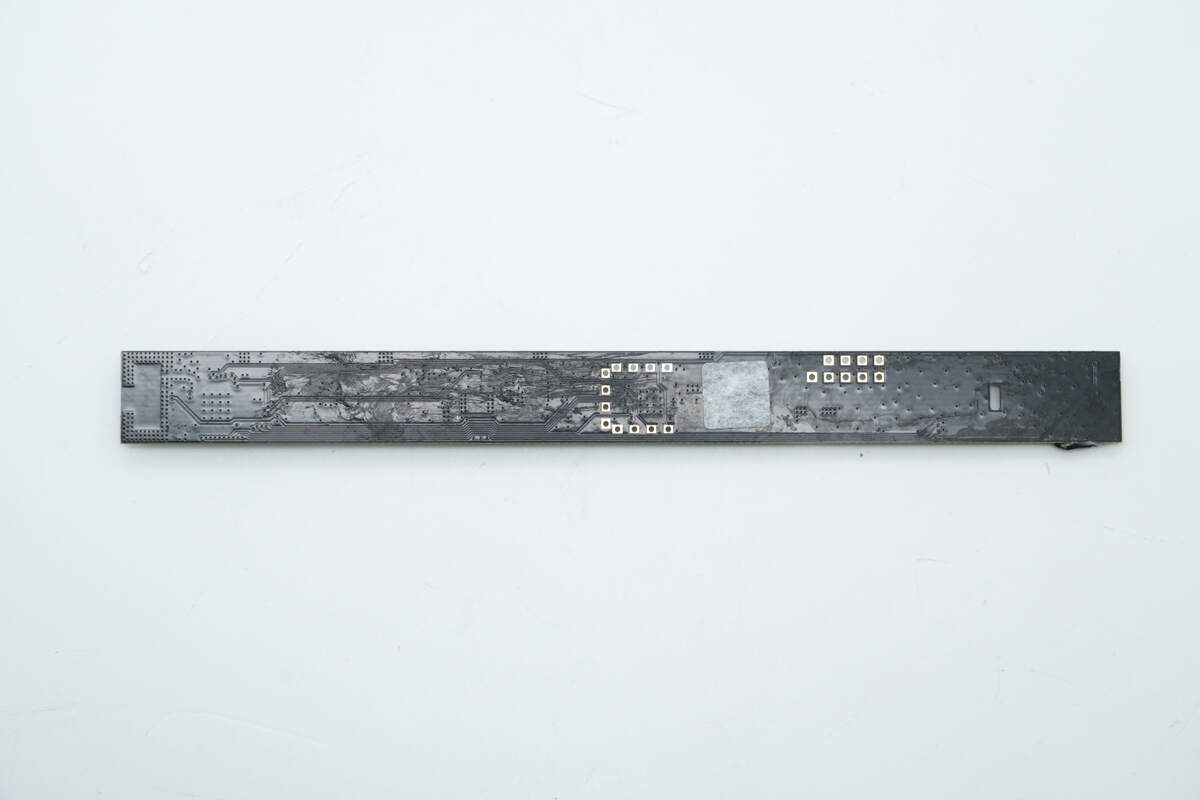
There are no components on the back.
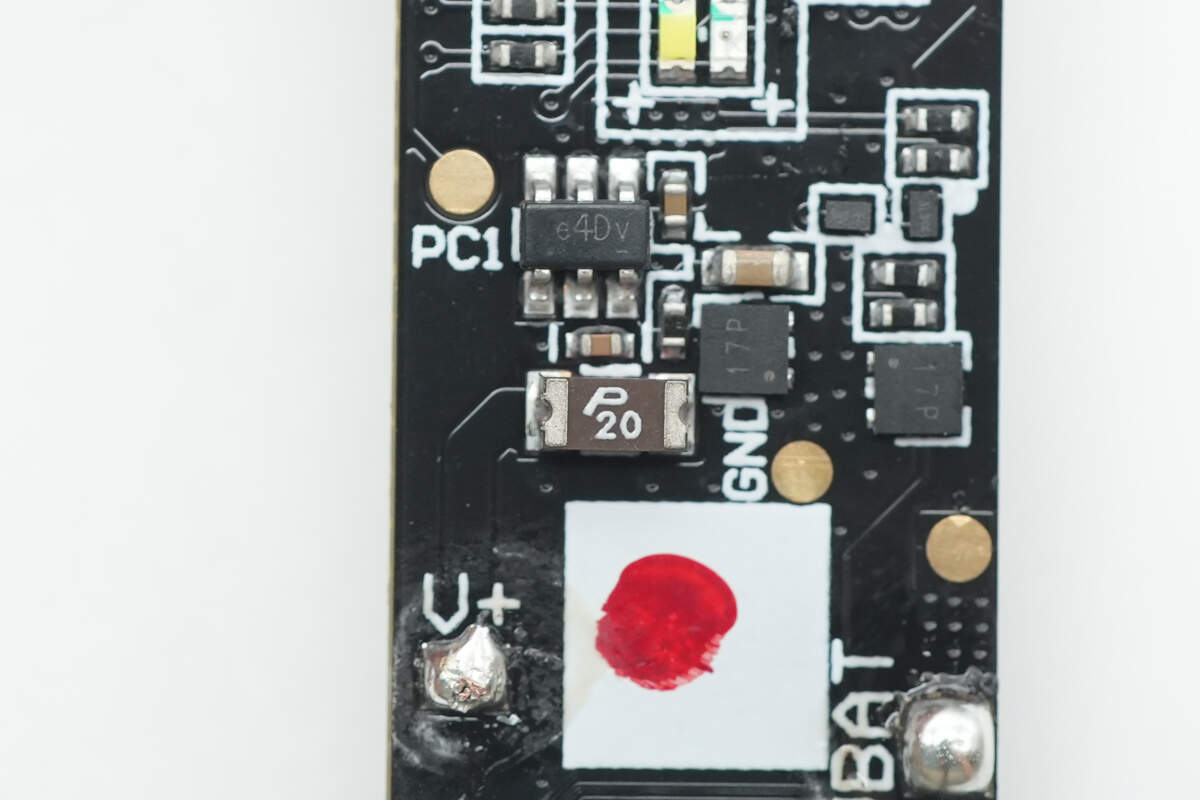
Close-up of the fuse.
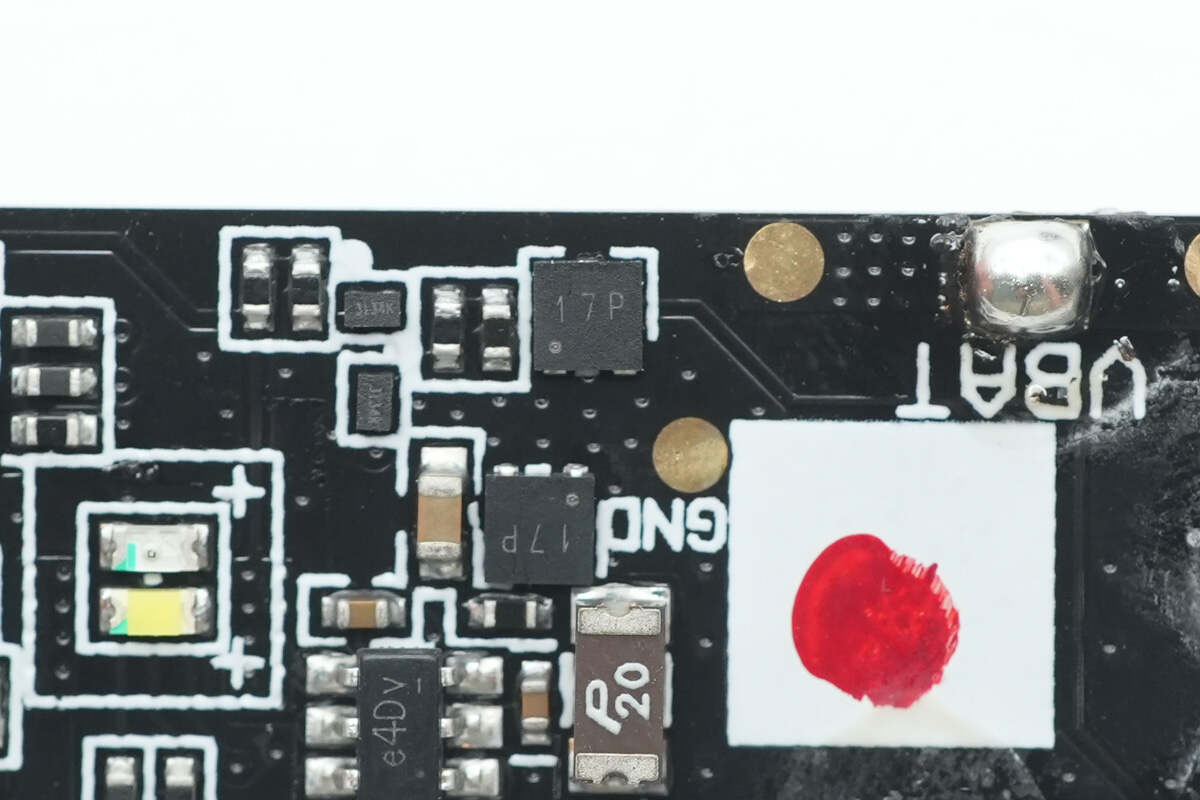
Two TVS diodes marked with 17P are present.
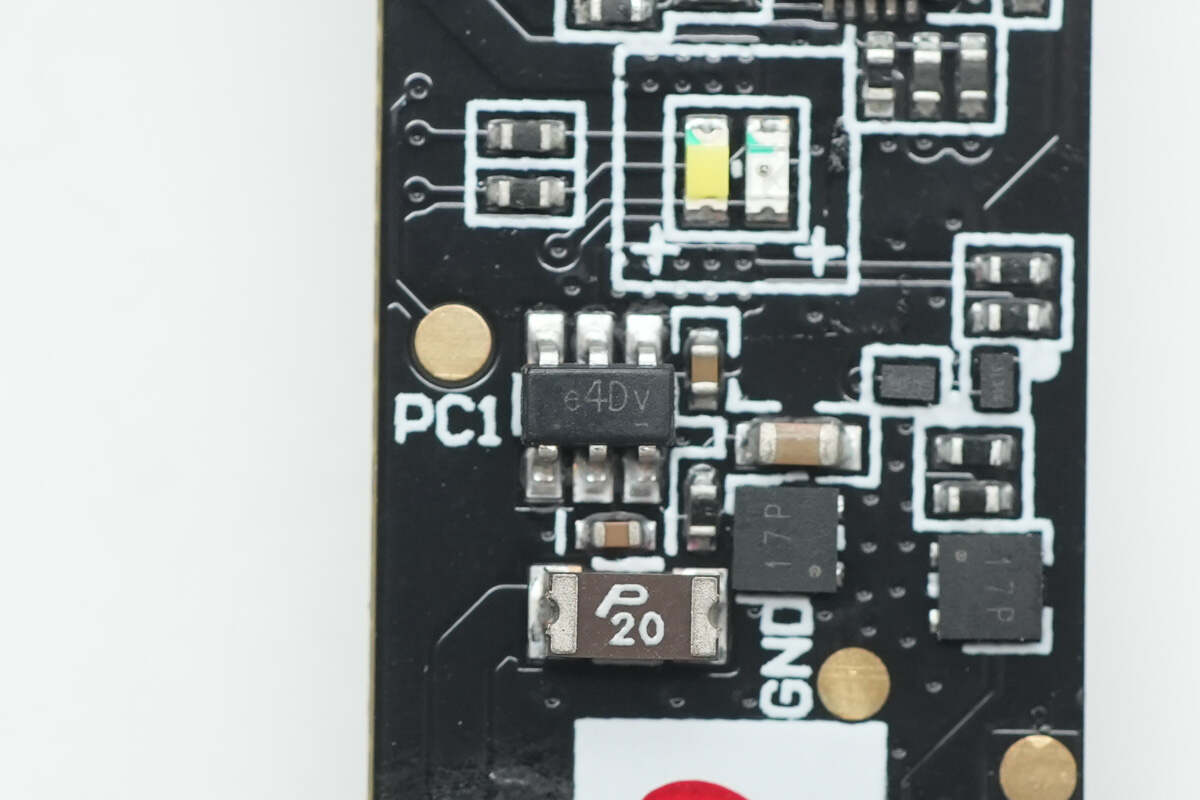
One chip is marked with e4Dv.
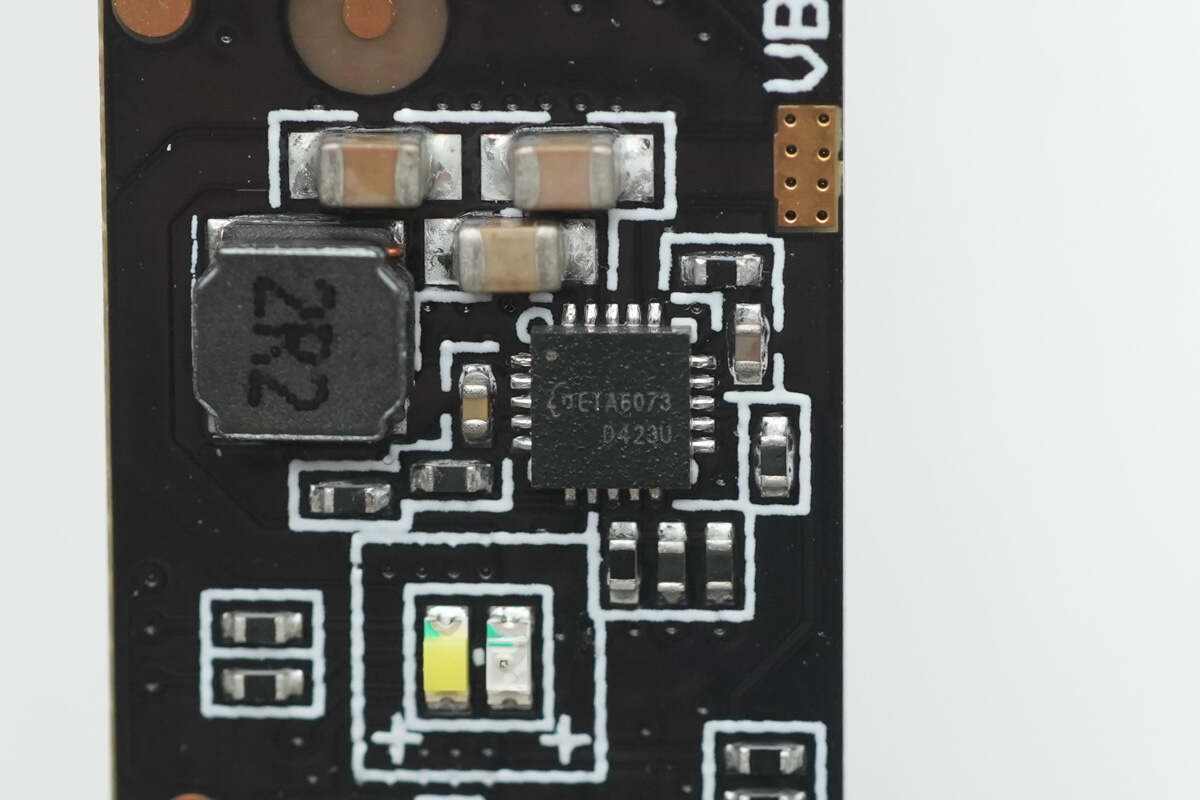
The battery charging chip is an ETA model ETA6073. It is a wide-input-range, high-efficiency synchronous boost charger designed for two series-connected lithium-ion cells. The input voltage range is 2.7–6V, and it can deliver up to 2.5A charging current to the two-series lithium-ion battery pack. Both charging current and termination voltage can be programmed via external resistors.
The ETA6073 also features input current limiting and dynamic input power management, automatically reducing charging current when connected to weak power sources. Its boost circuit includes a true shutdown function, completely disconnecting the input and output during short circuits or shutdown.
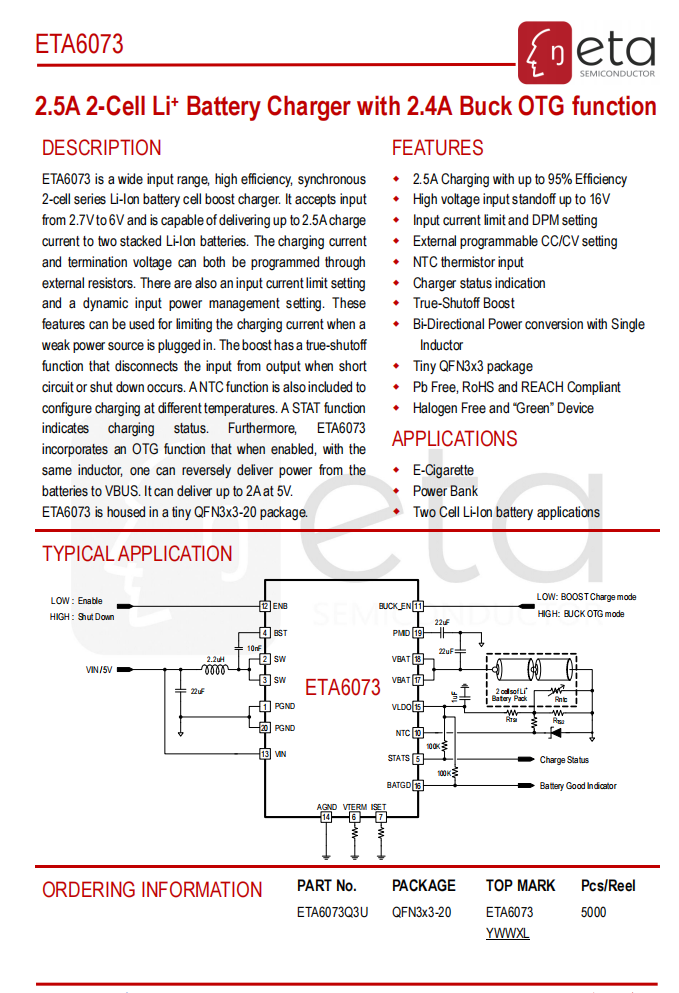
The ETA6073 features a built-in NTC temperature monitoring function, allowing configurable charging strategies based on different temperature conditions. The charging status can be monitored in real-time through the STAT pin. Additionally, the ETA6073 integrates an OTG function, which, when enabled, uses the same inductor to reverse power from the battery to the VBUS port, supporting a 5V 2A power output. It comes in a compact QFN 3x3-20 package.

Close-up of the paired 2.2 μH boost inductor.
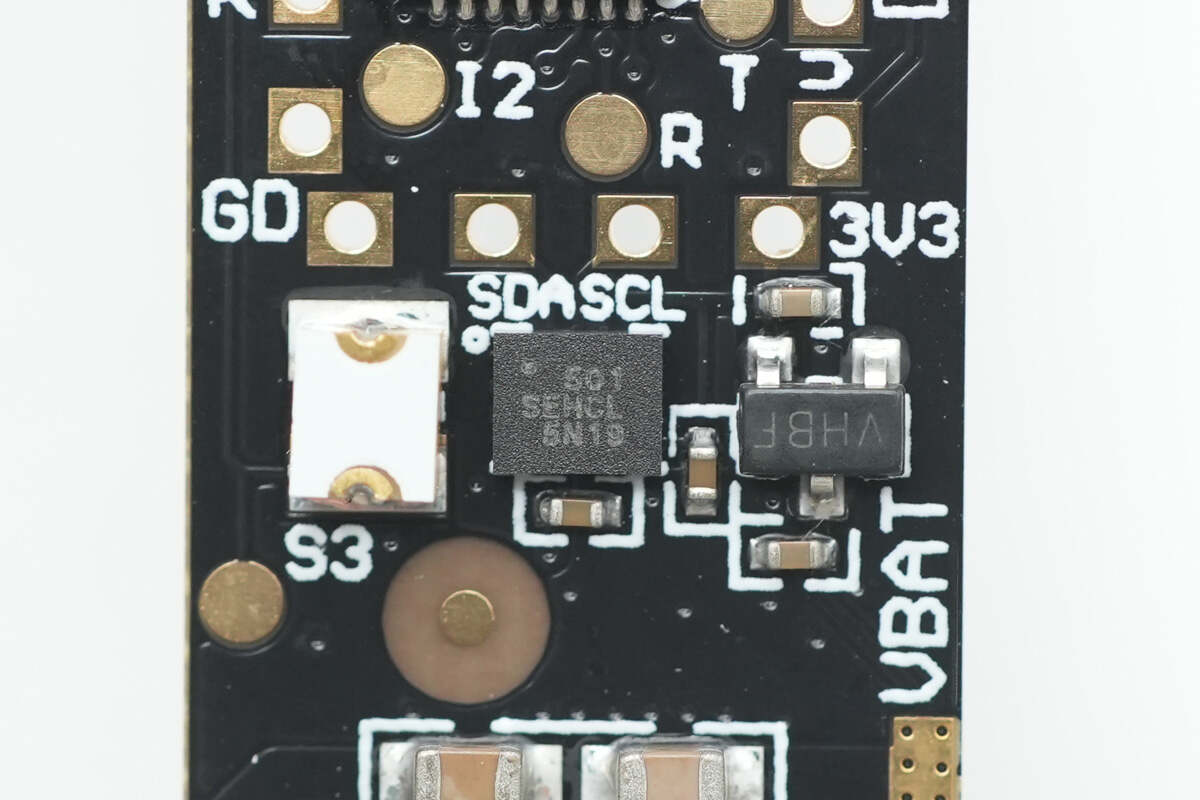
Close-up of the gyroscope marked with S01.

The Bluetooth SoC is from OnMicro, model OM6621Px. It is a low-power-optimized SoC solution designed for Bluetooth Low Energy and proprietary 2.4 GHz applications. It integrates a high-performance, low-power RF transceiver, Bluetooth baseband, and a wide range of peripheral interfaces. Additionally, it includes a built-in power management unit for efficient power control. The chip is housed in a QFN48 package.
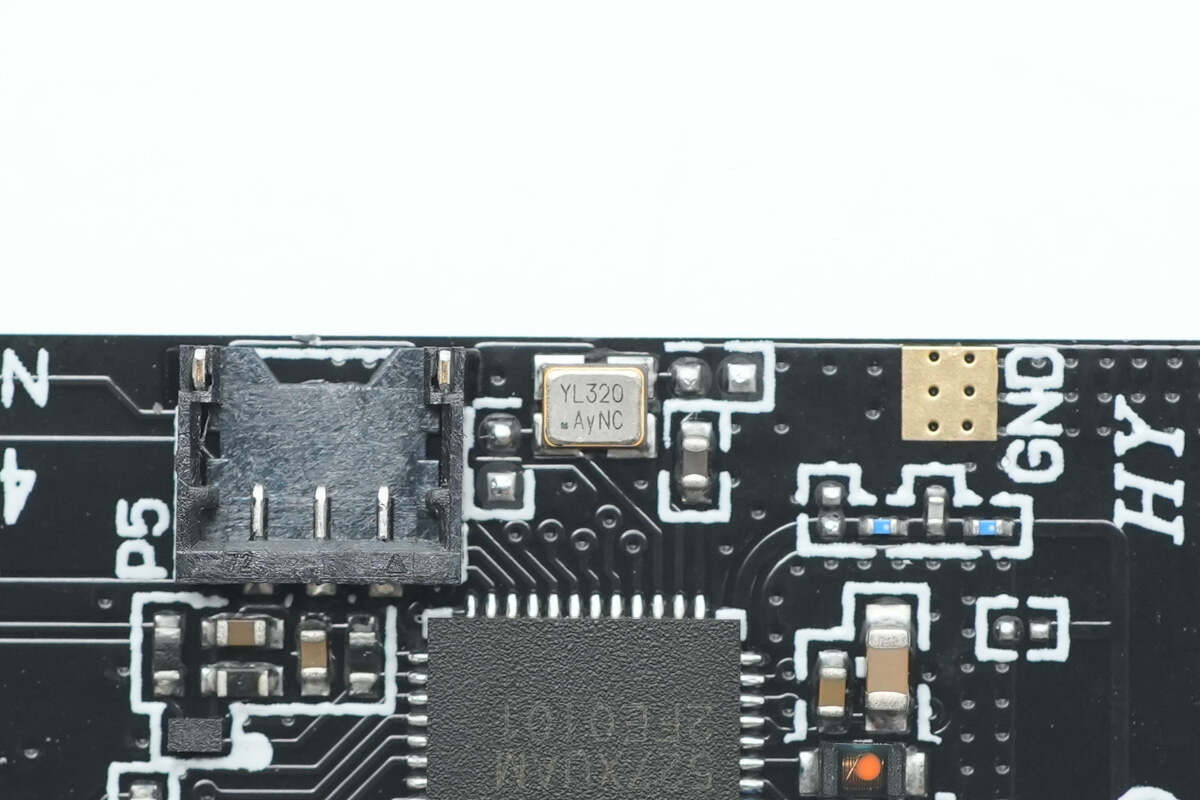
Close-up of the external 32 MHz crystal oscillator.

The MCU used to drive the motor is from Cmsemicon, model BAT32G135GE32NA. It features an ARM Cortex-M0+ core with a main frequency of 64 MHz, includes 64 KB + 1.5 KB of flash memory and 8 KB of SRAM, and comes in a QFN32 package.
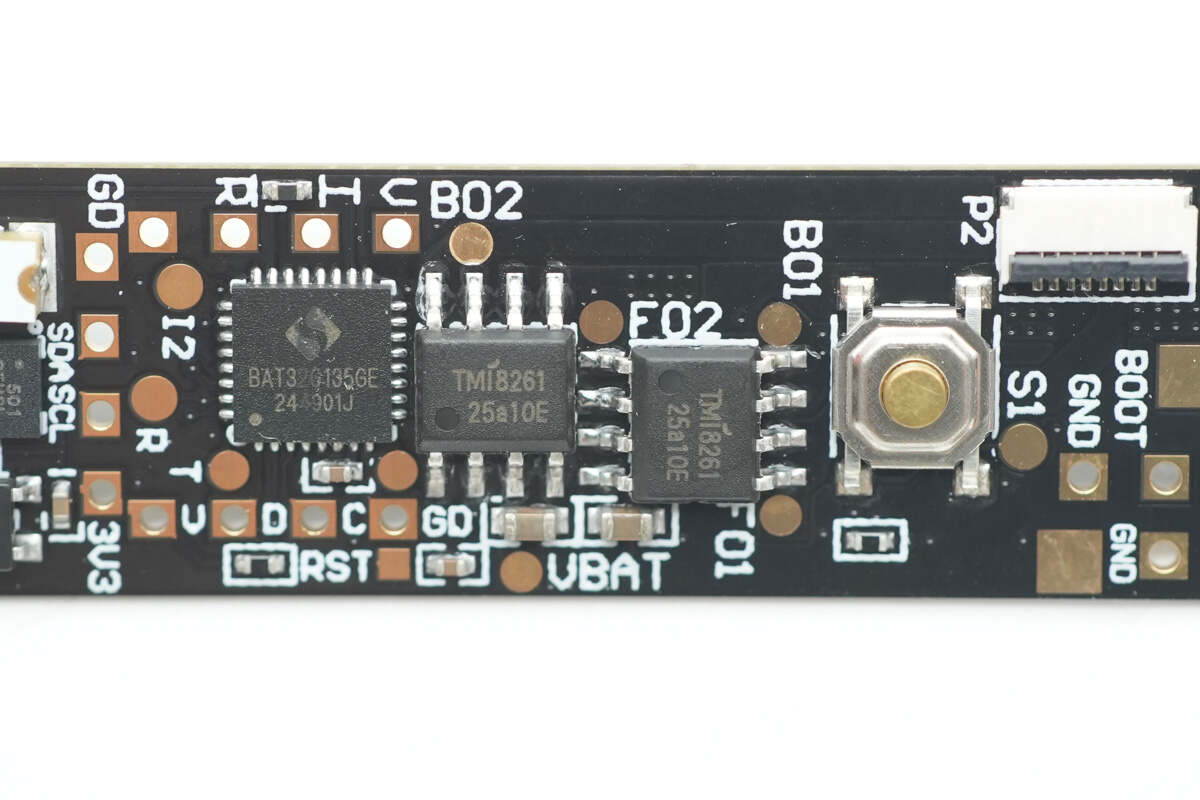
Two motor driver chips are from Tollsemi, model TMI8261. This is a bidirectional DC motor driver supporting up to 18 V supply voltage. It integrates low-resistance MOSFETs and supports a continuous output current of 5 A. The chip includes an emergency stop function and features protections such as over-temperature, undervoltage, overcurrent, and short-circuit protection. It is packaged in an SOP8 enclosure.
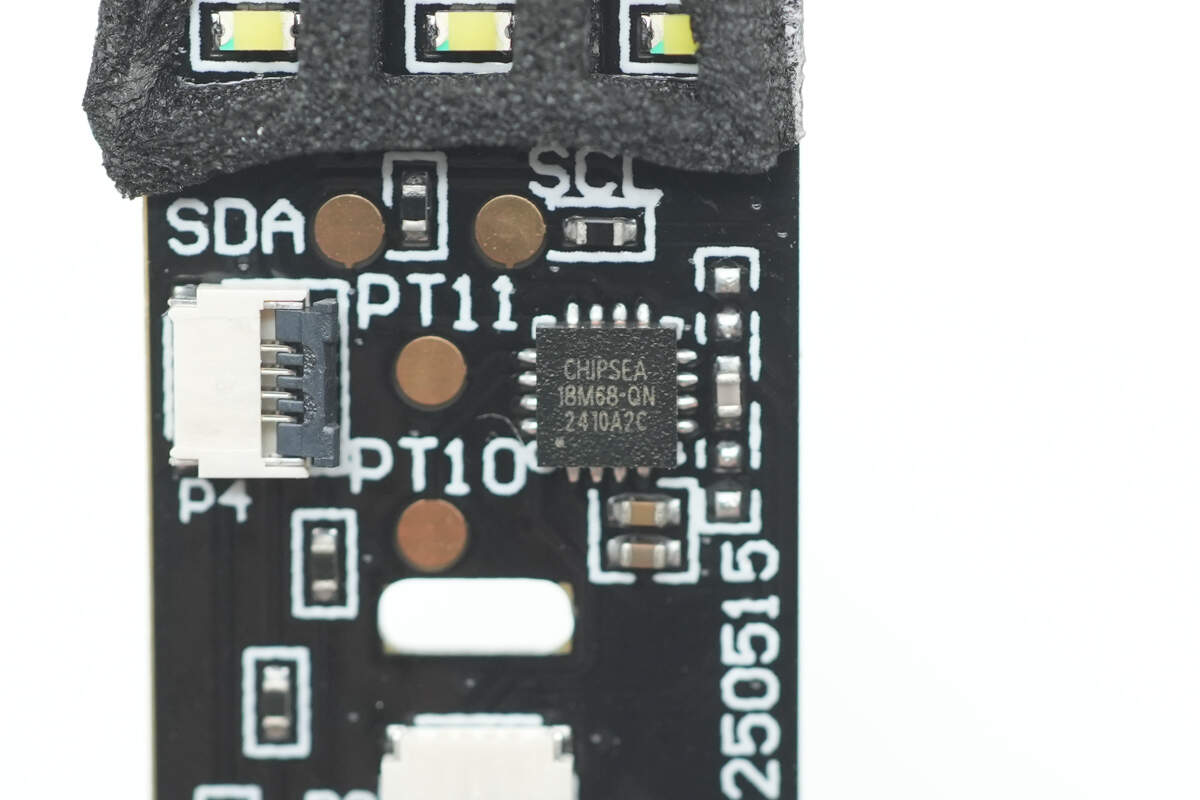
The pressure-sensing chip is from Chipsea, model CSU18M68. It supports both analog front-end and MCU operating modes, and features dual-channel pressure sensing, a built-in 16-bit ADC, a temperature sensor, and an I²C interface. It is suitable for use in smartphones, wearable devices, laptops, and industrial applications. The chip comes in a QFN16 package.
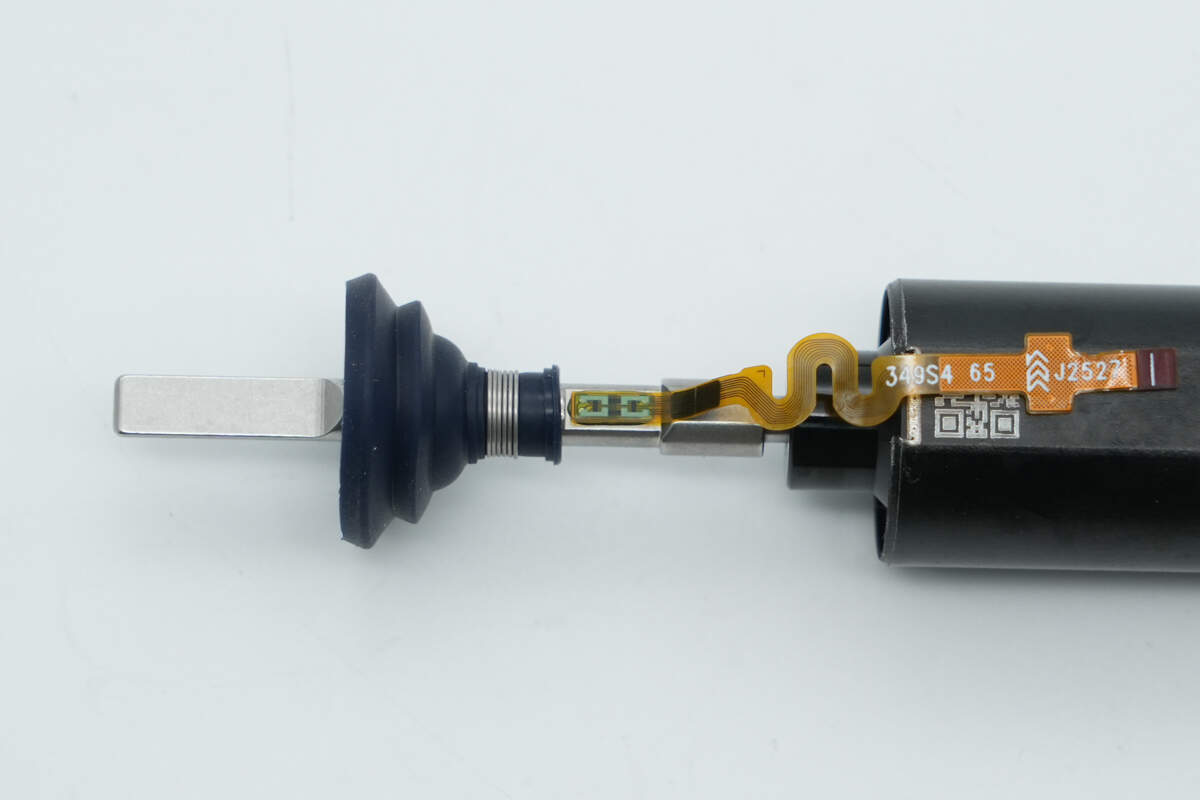
A pressure sensor is attached to the motor shaft, which detects the degree of shaft deformation to provide feedback on whether the brushing pressure is appropriate.
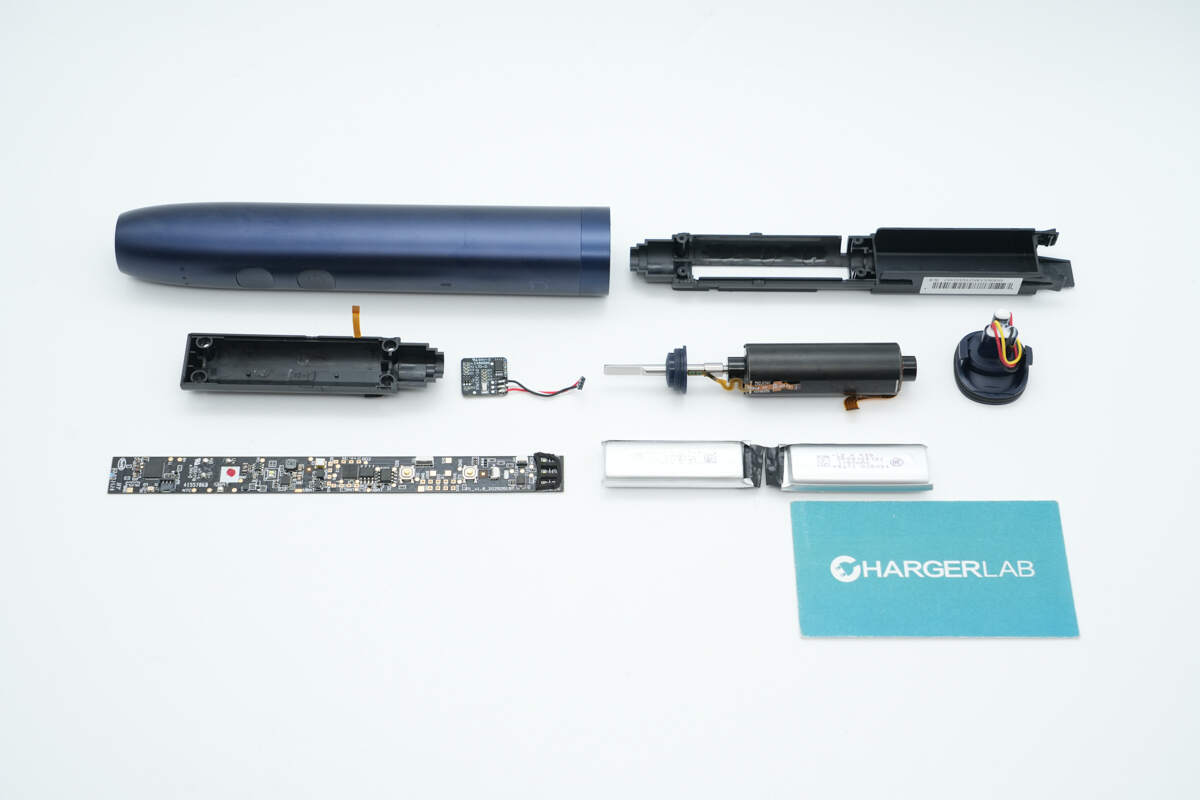
Well, those are all components of the Xiaomi Mijia Sonic Sweep Electric Toothbrush.
Summary of ChargerLAB
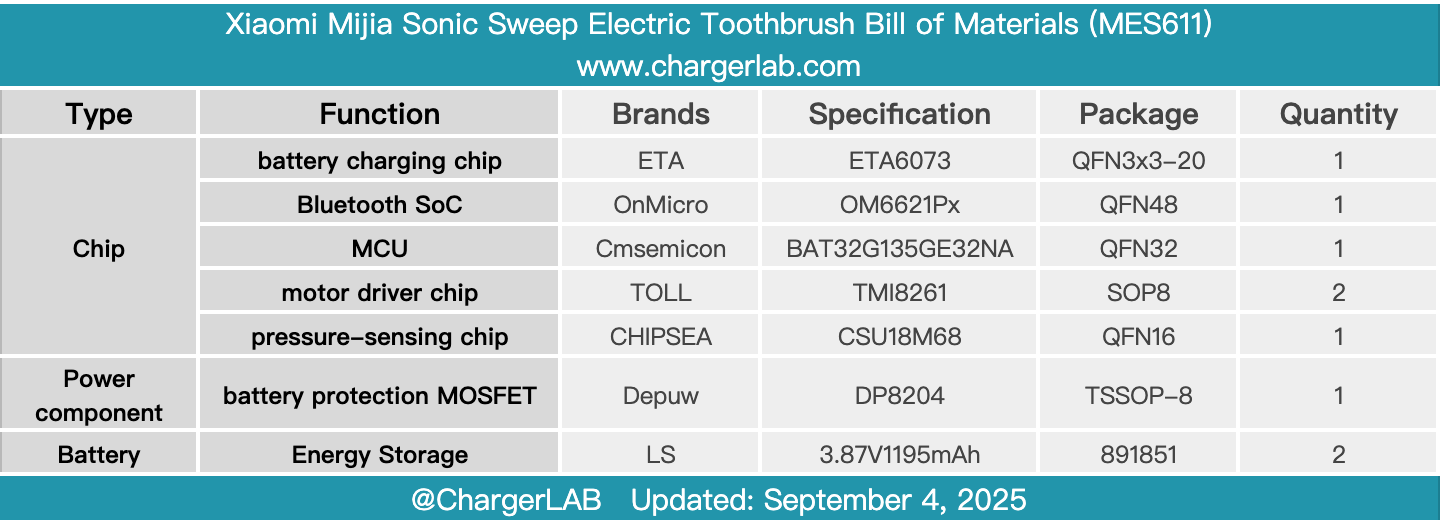
Here is the component list of the Xiaomi Mijia Sonic Sweep Electric Toothbrush for your convenience.
The handle features a unibody aluminum alloy construction formed through precision stamping. It includes indicator lights for brushing modes, pressure sensing, and battery status. The USB-C charging port supports IPX8 waterproofing. In basic mode, the battery life can last up to 30 days. The toothbrush also connects to the Mi Home app, enabling real-time tracking of cleaning areas, duration, and pressure, as well as generating detailed brushing reports.
After taking it apart, we found that it contains two LS battery cells, with the battery tabs spot-welded to the protection PCB. The battery pack is charged using the ETA ETA6073 charging solution. The overall device control is handled by the OnMicro OM6621Px Bluetooth SoC, while the Cmsemicon BAT32G135GE32NA MCU, paired with Tollsemi TMI8261 drivers, manages the motor. Pressure detection is performed by the Chipsea CSU18M68 sensor, and a gyroscope is used for motion detection.
Related Articles:
1. Teardown of GreatWall 2200W 80 PLUS Platinum Server Power Supply (CRPS2200DLW)
2. Teardown of EMERSON 1725W AC Power Supply (7001490-J000)
3. Teardown of Foton Aumark 3kW DC-DC Converter (SDM302BUYM)

